Chappell Roan released nine singles leading up to her 14-track debut album The Rise and Fall of a Midwest Princess in 2023, giving way to a year in which everyone you ask seems to have a different idea as to what the best song on Charli XCX’s latest album is. If this decade in music isn’t defined by the COVID pandemic threatening the very existence of the music industry as we know it, it’ll be remembered for the anomaly of artists like Chappell, Charli, Shaboozy, The Weeknd, Sabrina Carpenter, and Taylor Swift unlocking new achievements previously unheard of when it comes to their singles’ chart and streaming accomplishments.
Yet the album is far from dead—just consider the fact that Billie Eilish, one of the moment’s other biggest names in pop music, released her latest album with zero pre-album singles to hype it in order to draw attention to the work as a whole (and, more selflessly, the concept of enjoying any record as a whole). While just about every album on the list below has at least one earworm worthy of singling out, none would be here if it wasn’t for the artist’s ability to naturally embed it within a broader framework of music that provides a clearer picture of 2024 than any trend in singles distribution could paint, whether it be rhythmically, aesthetically, or politically.
Here are our picks for the 50 best albums of 2024.

50. Angry Blackmen, The Legend of ABM
Angry Blackmen’s music has this uncanny ability to melt your fucking face every time you listen. This has never been more apparent than on The Legend of ABM, the Chicago rap outfit’s personal epic and debut full-length that follows members Brian Warren and Quentin Branch as they wade through the dystopian reality of racist hypercapitalism. With production that’s “meant to snap your spine in half,” per their Bandcamp page, Angry Blackmen’s glitching melodies over nitroglycerine-laced bass triggers your flight-or-fight response as they take you on a ride through a capitalist hellscape blasting Prodigy.
The duo is deeply reverent toward hip-hop history, paying homage to MF DOOM’s “Rhymes Like Dimes” on “Grind” while detailing struggles with mental health and alcoholism on the Biggie-inspired “Suicidal Tendencies.” The title track presents a microcosm of the album: stomach-clenching bass booming while a howling wind swirls. The track winds down with Japanese-language narration detailing the return of this story’s heroes to the dystopian realm of North America. Full-throated and armed with production that rivals a nuclear test site, Angry Blackmen are ready to take their revenge on this fucked-up world. The Legend of ABM is just volume one, if you can survive it. — Kevin Crandall
Read Angry Blackmen’s exclusive track-by-track breakdown of The Legend of ABM here.

49. Touché Amoré, Spiral in a Straight Line
For their sixth full-length album, Touché Amoré may have reunited with legendary producer Ross Robinson, but they didn’t just remake 2020’s Lament. Instead, Spiral in a Straight Line songs like “Hal Ashby” see the band integrating phaser-friendly shoegaze guitars into their hardcore pedigree to craft a sound that pays special attention to the space between the aggressive bursts. That isn’t to say that the band have mellowed out: “Mezzanine” features blast beats and frontman Jeremy Bolm’s vehement vocals. But the heaviness is less dependent on distortion and leans into Bolm’s existential lyrics and the band’s atmospheric accents.
In fact, when Bolm sings the lines “I’ve reached the summit to get as close to the edge / To gain some perspective with my arms outstretched” on “Altitude,” that metaphorical mountain could just as easily be the formulaic limitations of hardcore as it is his own form of poetic self-analysis. Another standout on the album is “Subversion (Brand New Love),” which features vocals from Lou Barlow and feels more like prog rock than post-hardcore as it crescendos with a harmonious duet between these unlikely partners. Ultimately, these types of risks make Spiral in a Straight Line such a satisfying listen—a fact that’s further evidenced on the finale, “Goodbye for Now,” which sees longtime collaborator Julien Baker harmonizing with Bolm about love and loss in a way that’s as cathartic as it is crushing. If you came here strictly to mosh, you’re in the wrong place. — Jonah Bayer
Read our review of Spiral in a Straight Line here.
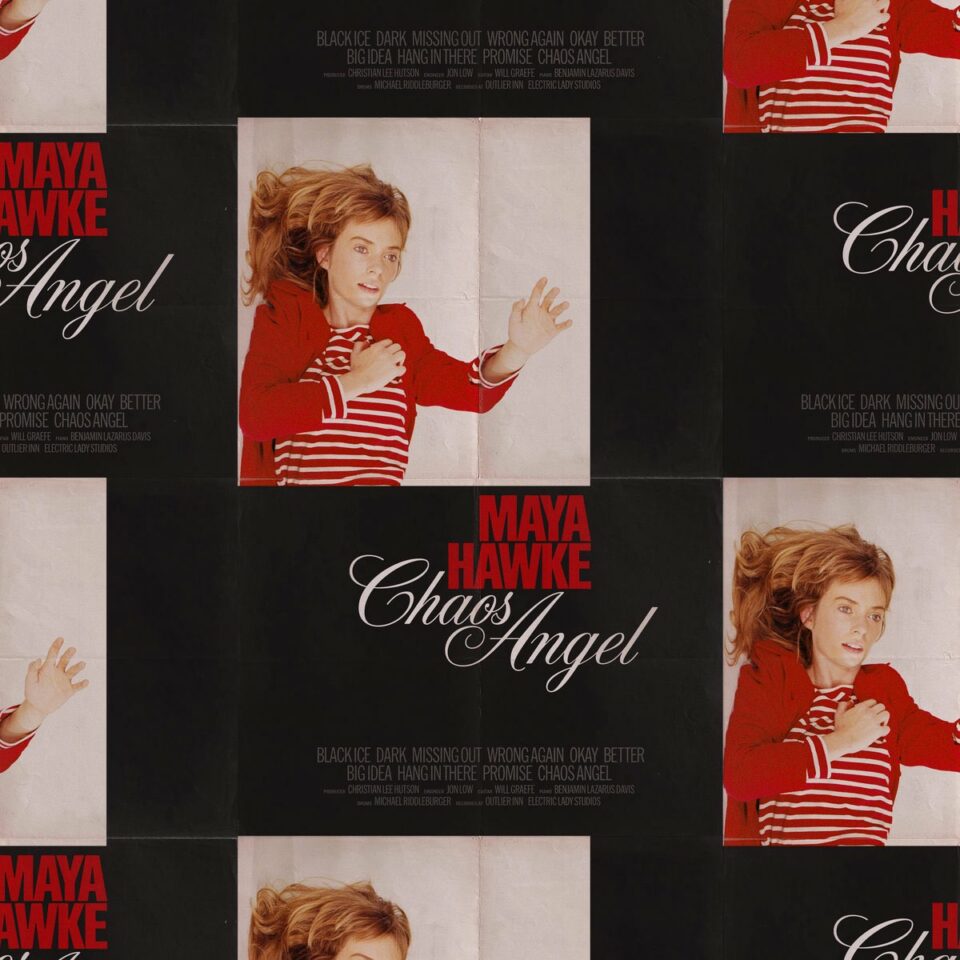
48. Maya Hawke, Chaos Angel
Calling what Maya Hawke does as a vocalist “actorly” is no insult to the singer and songwriter. Instead, that comment is a welcome response to Hawke in consideration of her thespian day job, and the whisper-to-scream verbal tics and nuances she brings to her newest album, Chaos Angel. Yet along with the various voices she lends to songs such as “Black Ice” and “Wrong Again,” Hawke has put in the work as a musician, producer, and curator so as to expand the earnest, odd folksiness that marked her previous albums Moss and Blush.
Curation is truly important to Chaos Angel. To go with her twisted true stories and mantra-like lyrics (see “Okay” for the latter), Hawke has collected an expressionist group of collaborators—Norah Jones’ main man Jesse Harris, boygenius’ best male teammate Christian Lee Hutson, Joan as Police Woman’s Benjamin Lazar Davis, multi-instrumentalist Will Graefe—to aid her in the creation of an expansive, open-ended sonic/songwriting palette broader than that of her past albums, but without moving too fast or too far from the styles that made us fall in love with her in the first place. While a song such as the title track lifts and separates from its tiny, humble piano beginning into something grand and orchestral, the minor-key epic of “Missing Out” features fuzz tones and glitch-hop FX to create its enveloping, spiderweb-like ambience. Plus, every melody on Chaos Angel is a winningly contagious one that sucks you into Hawke’s vocal vortex—actorly, intimately, and beyond. — A.D. Amorosi
Read our digital cover feature with Maya Hawke here.
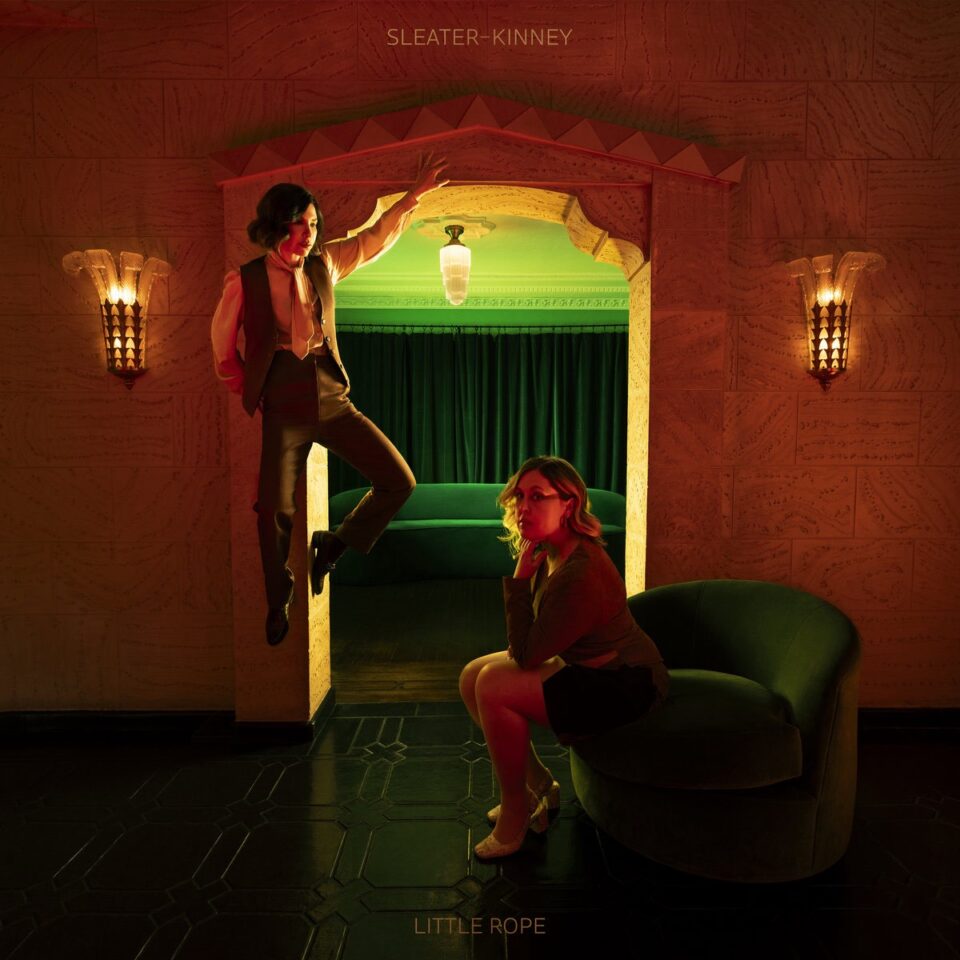
47. Sleater-Kinney, Little Rope
The furious punk-rock intensity that Sleater-Kinney brought to classic albums like Dig Me Out and Call the Doctor was never sustainable; not forever, anyway. As traumatic as it was when drummer Janet Weiss acrimoniously left the band, her exit provided Carrie Brownstein and Corin Tucker with a welcome opportunity to pivot, making a clean break from the lofty expectations of their imperial era. On Little Rope, the duo, augmented by a broad cast of supporting musicians, doesn’t channel the breathless frenzy of Dig Me Out, nor the thundering grandeur of The Woods. But they do demonstrate an ongoing commitment to focused, inspired record-making, running through 10 streamlined tracks in just over half an hour’s time.
And, they prove that even divisive, synth-colored projects like The Center Won’t Hold and Path of Wellness offered key lessons about making richly textured, groove-centered music. Little Rope finds the veteran band showing off yet another new set of skills, including an incredible knack for shading and burnishing their riffs and for writing propulsive, instantly memorable hooks. Part of what makes their work so invigorating is that they’re galvanized by grief, particularly the car accident that claimed Brownstein’s mother. The lyrics, mostly written before the accident, seem to anticipate its breach, taxonomizing different stages of bereavement via spiky humor. Special commendation to Tucker, who seems to understand the importance of rising to the occasion and bearing her comrade’s burdens. She sounds more fiery here than she has in years. — Josh Hurst
Read our feature with Sleater-Kinney here.

46. Bolis Pupul, Letter to You
On his debut solo album Letter to Yu, Belgian-born producer and Charlotte Adigéry collaborator Bolis Pupul travels between the ancestral plane and his parent’s geographic origins. Pupul’s first trip to his mother’s native Hong Kong, a decade following her passing, inspired an album that explores the emotional, spiritual, and physical response to people, places, and time lost. The title track is the album’s cornerstone, where Pupul welcomes personal transformation as he recites a letter he wrote to his mother while on that perspective-shifting trip, so as to not forget the feeling.
“My heart is in my throat / My eyes filled with tears / This is where you were born,” he recites in a low, warped voice, pulled with immense emotional gravity. “I’m finally here / Why did it take me so long?” Here, Pupul has connected various timelines. It’s a beginning that feels revelatory, yet also doesn’t feel like an initiation at all, both completely stationary and moving with time. Letter to Yu is a textured quilt of found sound, braiding heavy emotions and city commotion. Bolis Pupul invites all the senses—from the thrill of a spicy seafood delicacy to the subway’s bustle and buzz—for a project that profoundly preserves memories. — Margaret Farrell
Read our review of Letter to Yu here.
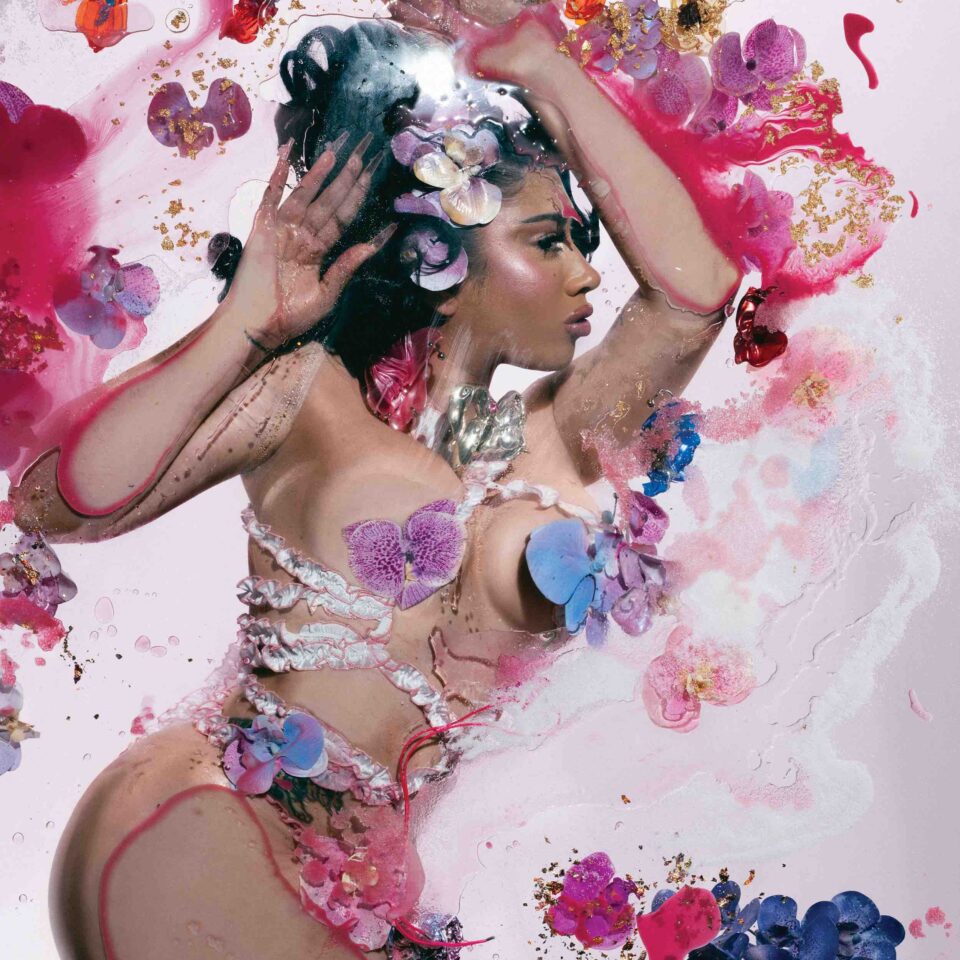
45. Kali Uchis, Orquídeas
“If you come around here, you’ll never want to leave,” coos Kali Uchis at the outset of her addictive fourth album, Orquídeas. It’s the perfect summary of her casual bravado, her imperious nonchalance. This time she’s really earned it, too: Named for the official flower of her native Colombia, Orquídeas finds Uchis’ considerable talents in full blossom. Over the course of her previous albums (some sung in English, others primarily in Spanish), she’s dabbled in both traditionalism and the cutting-edge, drawing equally from Colombian dance traditions and operatic balladry, vintage soul and contemporary pop. These varied strands are intricately woven throughout Orquídeas, where Uchis proves her bona fides as a hitmaker au courant, even enlisting (but never being eclipsed by) the starpower of Peso Pluma and Karol G.
There are soft-touch club tracks that recall ’90s and early-’00s dance icons—Aaliyah, Kylie, Ray of Light–era Madonna. And there are dynamic songs that summon the spirits of Uchis’ foremothers: romantic bolero-style weepers, funky blasts of salsa, even forays into the boisterous energy of old-school American hip-hop. Throughout, Uchis casually flips between Spanish and English, often within the span of a single sentence—another forceful show of her borderlessness. For non-Spanish speakers, she leaves plenty of English breadcrumbs to convey the spirit of her songs: “I don’t do frenemies”; “Those who don’t adore me, bore me”; “Watch out, she’ll walk you like a dog, woof woof!” She sounds like she can do just about anything she sets her mind to, and on Orquídeas, that’s quite a lot. — Josh Hurst
Read our review of Orquídeas here.
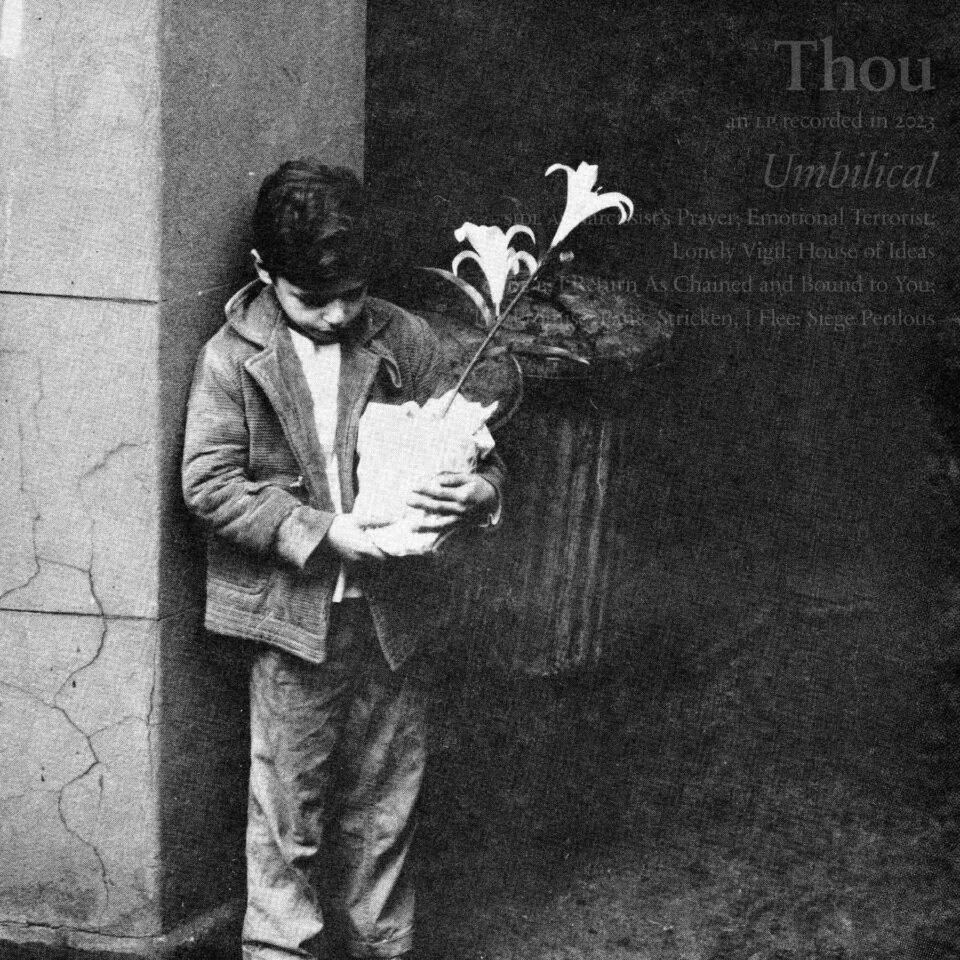
44. Thou, Umbilical
Thou are the rare metal band that not only boast a broad range of influences, but also make it a significant portion of the project’s persona that they don’t give a shit what you think about that fact. They’re not shy about their adoration of Eyehategod and Nirvana, releasing music that often vaguely feels like some form of shitposting in its blatant homage—or sacrificial ritual—to the forefathers of sludge and grunge, respectively, rather than giving their audience a conventional LP. They notably also Euro-stepped through three nearly incompatible genres of music the summer before releasing their last slab of non-collaborative original material: 2018’s 75-minute behemoth of Trump-era doom, Magus.
Which is to say that at this point, the 180 they took with its follow-up could very much be expected. Umbilical has a bit of a precedent with the band’s uncharacteristically black-metal take on Zola Jesus’ “Night” a few years back, but otherwise the relatively quick pacing and conventional song lengths featured on the new record feel like peeling off all those winter layers after heavy snowfall turns to sleet. In place of the snail’s-pace dirges mounting over the course of 10 minutes is a completely reasonable runtime borrowing from Chat Pile’s playbook of adapting bass-forward sludge to some eerie form of bayou-wading pop music, albeit with Bryan Funck’s constant terrorizer vocals subbing in for the madman narration of Raygun Busch. If Magus was the two-handed dunk after two-stepping to the hole, Umbilical feels like Thou returning from a long off-season as an offensive threat from outside the key. — Mike LeSuer
Read our review of Umbilical here.
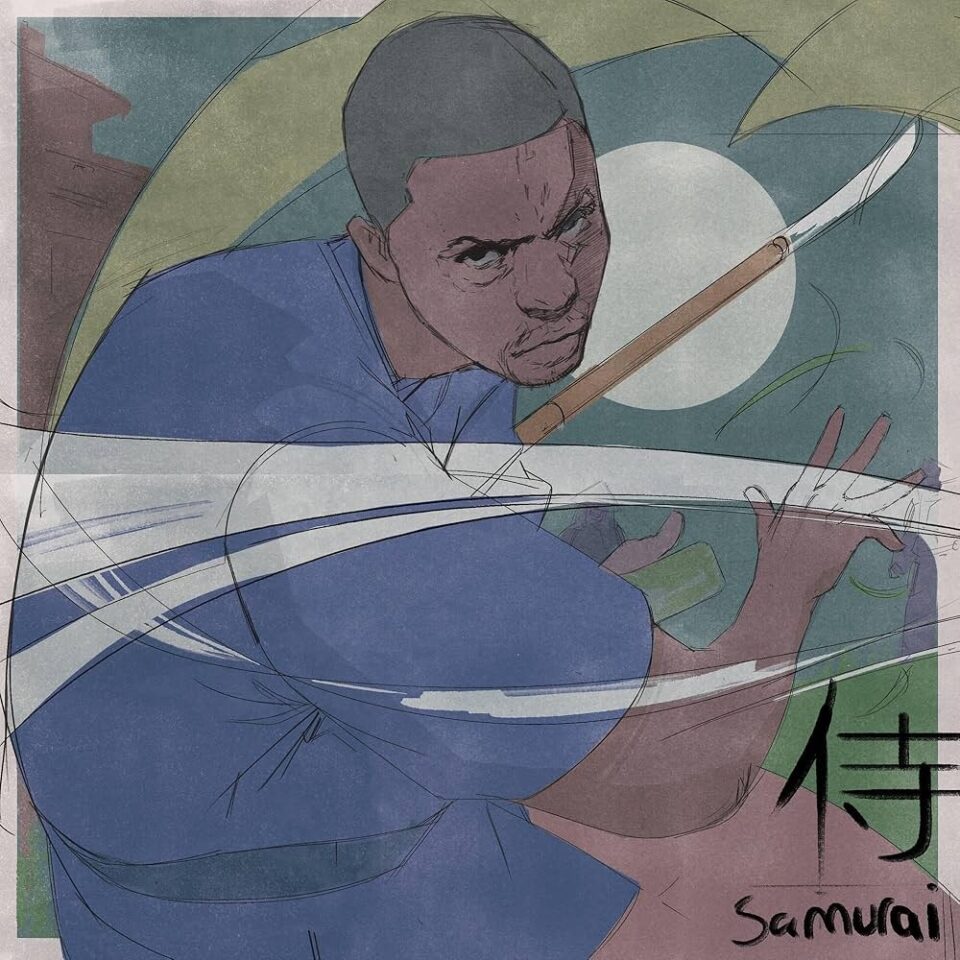
43. Lupe Fiasco, Samurai
There are few rappers with the ability to access multiverses through their rhymes like Lupe Fiasco. The Chicago-reared rap legend has long put out detailed concept albums, chronicling self-described “Lupe universes” through his raps. On Samurai, Fiasco taps into a near-possible world through a voicemail recorded by the timeless Amy Winehouse featured in the 2015 biographical doc Amy, crafting a series of Wu-Tang-influenced jazz-rap tracks that chronicle the imagined battle rap career of the “Back to Black” singer. Yes, this is a concept album about Amy Winehouse as a battle rapper, trained in Shaolin-style rhyming.
Fiasco is writing with gasoline here, providing knockout bars through a Winehouse persona as the scene travels from the initial battle rap set in “Samurai” to the celebration of her win in “Cake” and beyond. “No. 1 Headband” punctuates the victory, paying homage to the world of the hip hop-inspired manga Afro Samurai, where the coveted headpiece is only worn by the greatest warrior in a feudal-futuristic Japan. On the production, fellow Chicagoan Soundtrakk dusts off his crate of jazz records for chopping, putting a Tribe-era flare on the backings for “Mumble Rap” while slapping some filthy Lil Jon–era 808s over an upright bass on “Outside.” Every new album creates a new Lupe universe, and Samurai punctuates one of the richest rap careers we’ve had the pleasure to witness. Long live Amy Winehouse, the battle rap samurai. — Kevin Crandall
Read our feature with Lupe Fiasco here.

42. Nia Archives, Silence Is Loud
The debut album from West Yorkshire musician Nia Archives confirms that you can find solace in turbulence. “I’ve always loved the chaos of jungle,” the producer/singer-songwriter revealed regarding her inclination for quick-paced electronic soundbeds. As one of the revitalizing forces behind the resurgence of the ’90s subgenre, Archives constructs a vast skyline of relentless, indestructible breakbeats, spires of syncopation, and towering satin vocals. This vibrant backdrop helps her make peace with the volume of pain. “You're the only thing keeping me sound / And without you, the silence is loud,” she sings on the title track. Her voice reverberates amongst a cartoonish beat that could soundtrack the subject of a racing video game hurtling toward a mental breakdown.
Most of Silence Is Loud feels like a defense mechanism: Keep moving so as to not feel the painful weight of the present moment. Although the record tackles subjects like isolation and family dysfunction, it also embodies both freewheeling catharsis and an embracing sense of comfort. Throughout, Archives expands the definition of the genre she’s been heavily associated with, morphing jungle’s euphoria with gloomy indie rock (“Blind Devotion”) and angsty pop-punk (“Crowded Roomz”). Toward the end, she presents a stripped-down reprise of the title track. It’s as deeply moving as her signature fierce crying-in-the-club antics. — Margaret Farrell
Read our review of Silence Is Loud here.
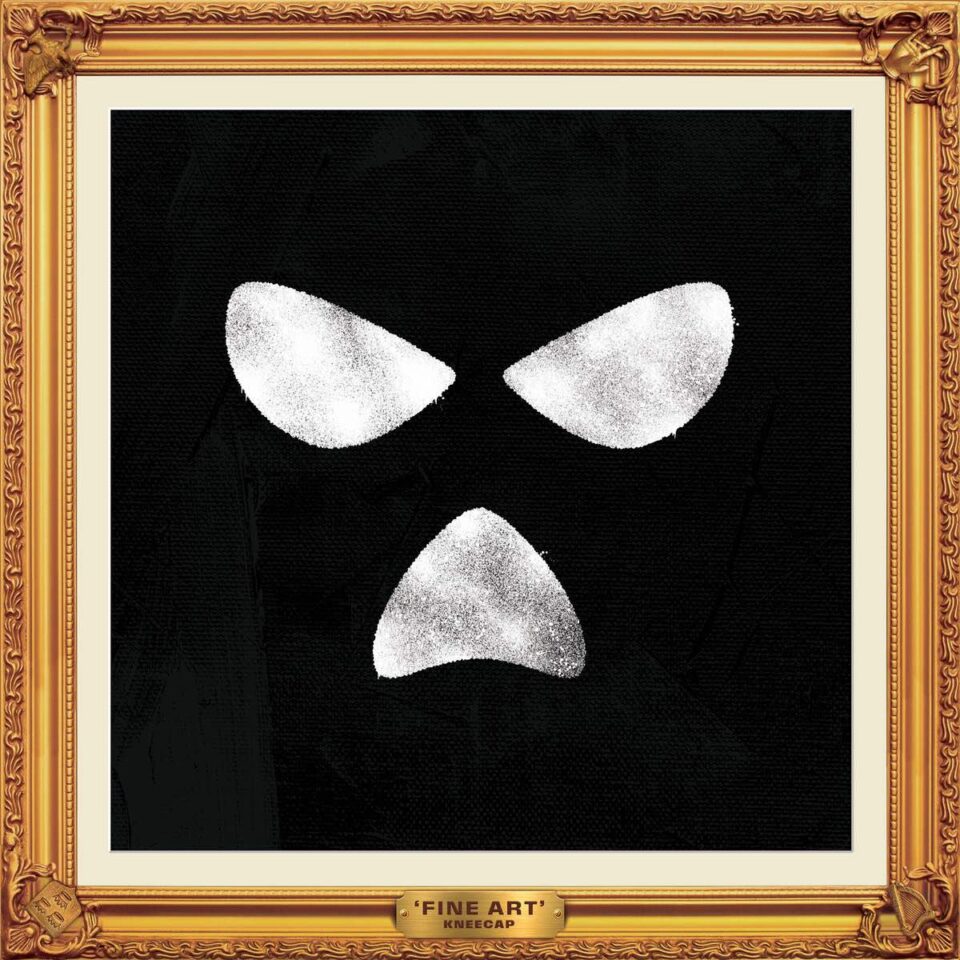
41. Kneecap, Fine Art
Fine Art, the debut album from Irish hip-hop trio Kneecap, is a rambunctious portrayal of reality in Northern Ireland. Well, loosely—the narrative-driven album balances scenes of ketamine-incited rhino shapeshifting, exploitation by greedy British record executives, and a good amount of dissociation at the local pub, all while reconciling mental health crises and the consequences of oppression in what can often seem a batshit-evil world. And all this complex beauty is rapped mostly in their native Irish tongue. Fine Art playfully balances the trio’s anti-establishment ethos, celebrating a language that the UK government has attempted to silence throughout history, only recognizing it as an official language in 2022.
Mo Chara, Móglaí Bap, and DJ Próvaí set a jovial scene in a fabricated, sticky-floored West Belfast pub The Rutz, marrying drug-induced euphoria with difficult life queries: Who has the rights to a language? What does one do when therapy is triple the price of self-medicating vices? How do we reconcile bureaucratic-instigated generational trauma? Why does anyone feel the need to enforce hierarchical genres of art if it represents another’s truth? How do you stay true to yourself in a world of bullshit? Fine Art is an amalgamation of traditional Irish music, acid house, old-school hip-hop, drill, UK garage, big beat, and Eurodance that probes these questions, while also gradually bringing us into Kneecap’s kaleidoscopic cocaine- and ketamine-dusted world. — Margaret Farrell
Read our feature with Kneecap here.
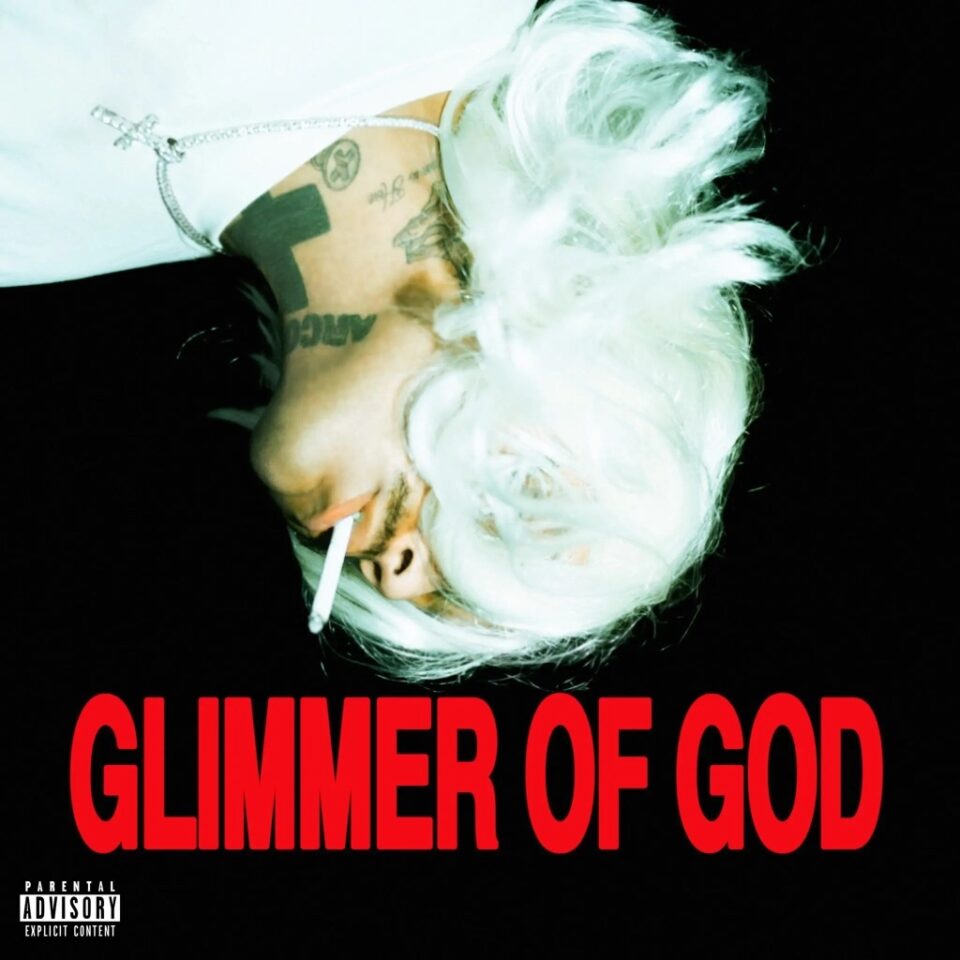
40. Jean Dawson, Glimmer of God
Jean Dawson has never been one to conform. It’s one of the qualities that’s made the Mexican-American musician really stand out from the crowd—by combining elements of hip-hop and alternative rock, he morphed and merged the two main genres he grew up listening to into something entirely his own. With this fourth album, Dawson has taken that concept to extremes. His most ambitious set of songs to date, Glimmer of God shows off the sheer breadth of influences that the songwriter has long tapped into. In fact, it’s almost as if each of these complex, dense, and mold-breaking songs not only represents a different facet of his musical personality, but are actually each entire self-contained universes.
The sassy funk of “Black Sugar” somehow manages to pay homage to and then reinvent the legacy of Prince, “You’re Bleeding Everywhere” recalls the sound and production of 1980s classic rock, and the beautiful melancholy of “Bubba” gives Bon Iver a run for his money, while also injecting some R&B strains into the equation. Elsewhere, the Lil Yachty–featuring “Die for Me” and “Slow Heavy Ecstasy” effortlessly subvert the typical frameworks of hip-hop, and final track “Kollapse” flings the door wide open for whatever the polymath’s mad-scientist musical brain comes up with. Throughout this record, lush orchestral textures elevate these songs into meticulously plotted compositions that showcase Dawson’s unique approach to crafting something utterly unexpected and out of the ordinary. Disparate but never uncohesive, beautiful but never saccharine, unrestrained but never self-indulgent, with Glimmer of God, Dawson has torn up and thrown out the rulebook with incredible results. — Mischa Pearlman
Read our digital cover feature with Jean Dawson here.

39. Godspeed You! Black Emperor, “No Title As of 13 February 2024, 28,340 Dead”
Though their music is made of few words, you’d have to be willfully looking the other way to miss the pure fiery political passion that’s gone into Canadian post-rock collective Godspeed You! Black Emperor’s work over the past three decades. Whether in their selectively cutting use of field recordings or the messages slapped on their gear—or even the liner notes of their records spelling out the music’s direct response to the production of explosive ordinances and Palestinian intifadas—Godspeed’s compositional style has always tilted its expressiveness as a form of unrestrained forthrightness.
This thread feels all the more urgent on the group’s latest record, carrying the anguish of the ever-hastening genocide of the Palestinian people as a plea for liberation in its every note. On tracks like “Raindrops Cast in Lead,” Godspeed’s guitars are especially jagged, unyielding in their just anger. But nearly as cutting are moments like the climax of “Babys in a Thundercloud,” wherein Sophie Trudeau’s violin leads a cry of despondency. In its compounding emotional weight, the record is the most unambiguous statement in years from a band whose work feels more vital than ever. — Natalie Marlin
Read our review of “No Title As of 13 February 2024, 28,340 Dead” here.
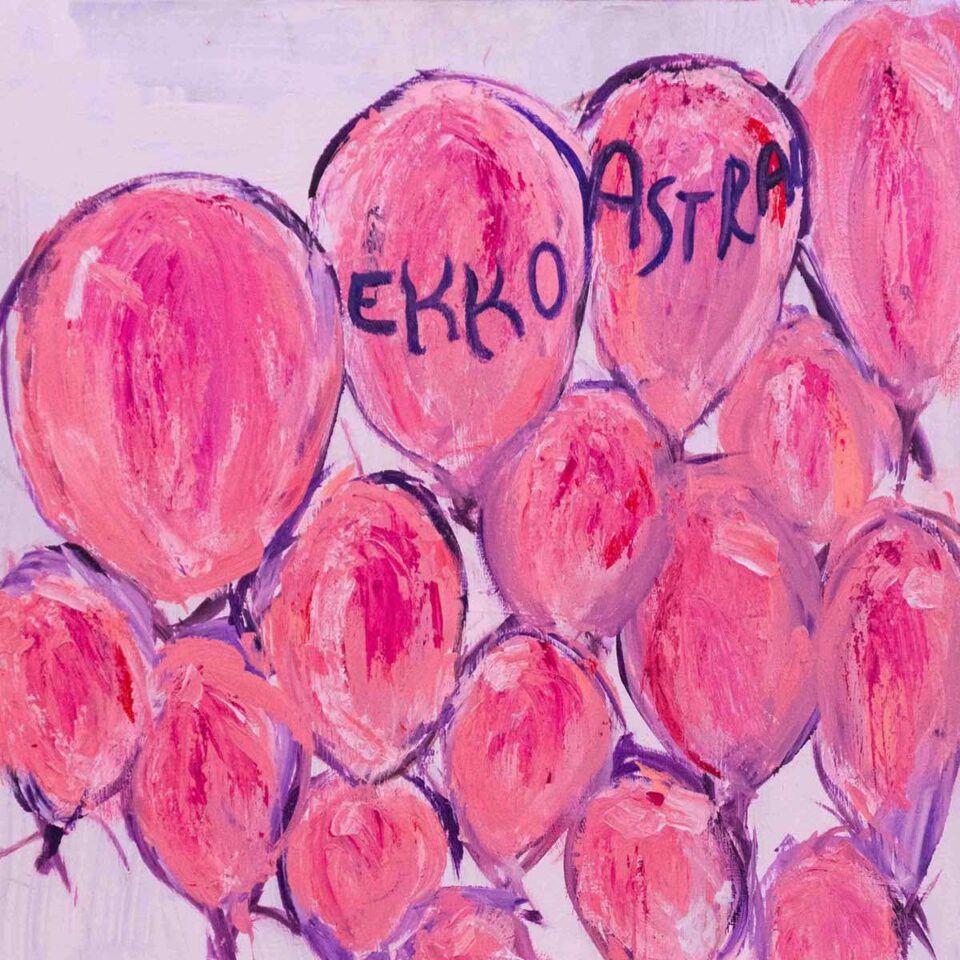
38. Ekko Astral, Pink Balloons
Washington, DC 's Ekko Astral exploded (or should I say “popped”?) into the forefront of the post-hardcore scene this year with their debut full-length, Pink Balloons. The record is rooted in love and rage, and it’s a project as confrontational as it is beguiling, opening with synths that sound like a Hammer horror reveal before moving between pummeling no-wave and stubbornly joyful noise-pop with ease. There are a few dualities at work here: lyricist and lead vocalist Jael Holzman, a climate reporter by day and a punk provocateur by night, is an expert at firing off excoriating commentary about capitalism and the state of trans rights in the same breath as a quip about, say, “Dollywood drop kicks,” as heard on “Sticks and Stones.”
The way she delivers these lines, her vocals twisting and surging with each new note, gives voice to how surreal and exhausting and sometimes fucking funny the state of the world can be, as on the fever-pitch litany of brand names listed on “Buffaloed”: “Gucci and Louis and Fenty Prada.” At her back are guitarists Liam Hughes and Sam Elmore, bassist Guinevere Tully, and drummer Miri Tyler—a tight-knit collective whose support for each other shines. On “Head Empty Blues,” for instance, as Holzman repeats the title over and over, the interplay between shredding guitars, Tully’s churning bass, and Tyler’s battering-ram drums will make your head spin. — Annie Parnell
Read Ekko Astral’s track-by-track breakdown of Pink Balloons here.
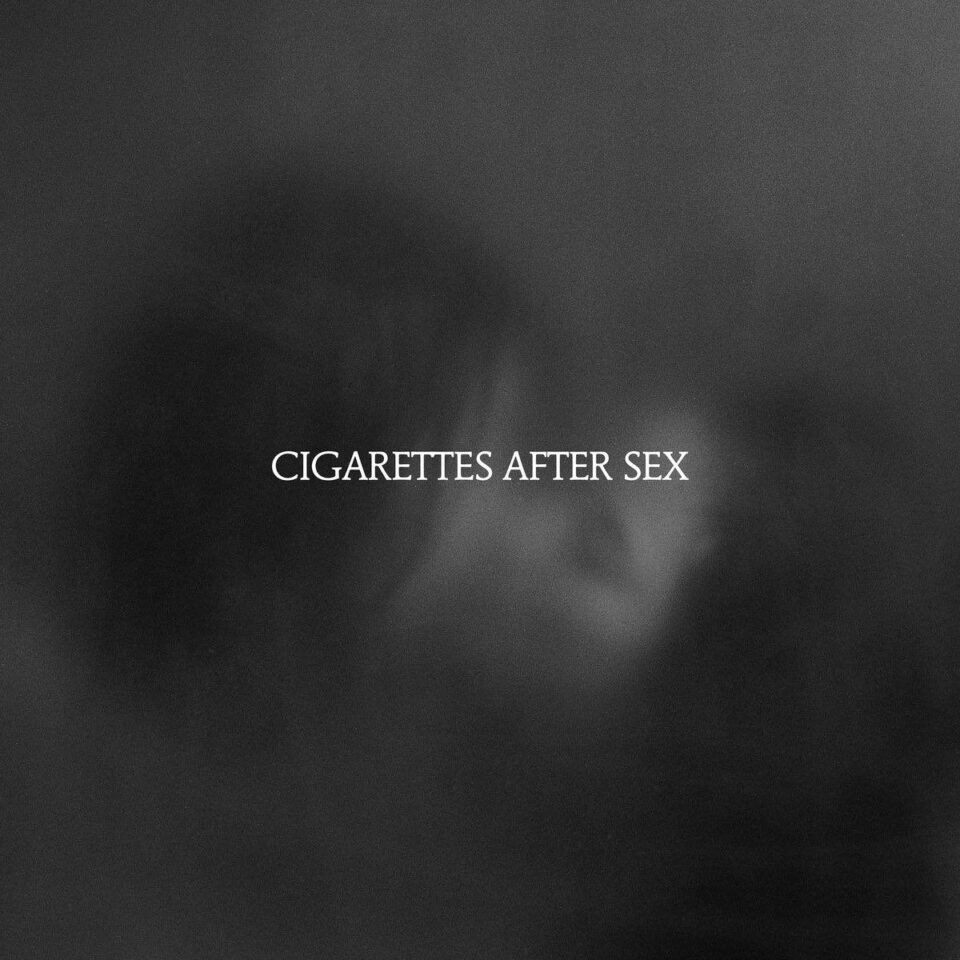
37. Cigarettes After Sex, X’s
Atmosphere counts for a lot to Greg Gonzalez. It can be heard in every sound he makes with Cigarettes After Sex—all the songs of aching romance that flow in gentle waves of melody. The bandleader has a hazy vision and philosophy behind his music, at once cinematic and deeply passionate that he’s refined further on X's. The title comes from the red X’s that Marilyn Monroe once scrawled across several rejected slides that were captured at one of her last major photo shoots—nudes created with the accomplished photographer Bert Stern in 1962. Opening the album, the title track eases into focus as Gonzalez purrs: “Honest with the love you give, careless with the way you talk / Say you want it just like this, sweet how the words slip.”
Lyrics from the El Paso songwriter are invariably obsessed with love, sex, and romantic conflict, but he can subtly shift gears, too. “Tejano Blue” weaves the traditional music of his hometown with ethereal layers of sound inspired by Cocteau Twins, a major influence. His lyrics here are quietly blunt and romantic: “We wanted to fuck with real love / Wanted it sweet, so pure and warm / Never only sleeping over.” Playing with bassist Randall Miller and drummer Jacob Tomsky, Gonzalez sings in his usual intimate, whispered vocal that at times seemingly leans toward falsetto. It’s with this understated approach that he’s somehow led this uncompromisingly quiet indie rock band to worldwide success and arena tours. They aren’t playing smoky bars anymore. And yet, if anything, the songs have only gotten smokier. — Steve Appleford
Read our digital cover feature with Cigarettes After Sex here.

36. Madi Diaz, Weird Faith
It’s becoming increasingly evident that we live in post-genre era where everything is accessible online all the time, everywhere. As such, local scenes don’t develop in the same way they used to, and music listeners aren’t so bothered about “belonging” to one circle in particular. That said, there’s still something of a divide between pop and quote-unquote serious music. And while artists like Billie Eilish and Olivia Rodrigo are helping to bridge the gap between popularity and acclaim, there’s still a stigma of sorts among these Serious Music Consumers if they listen to either of those artists instead of, say, Sonic Youth or the Yeah Yeah Yeahs.
To that extent, Madi Diaz is the perfect bridge between those two dichotomies—or the figure decimating said bridge. That’s because the Nashville-based musician has been personally selected by Harry Styles as one of his opening acts (and, subsequently, as one of his backing singers), but also writes songs that sound a universe away from those of the former One Direction member. Weird Faith is Diaz’s second full-length, and it demonstrates her sheer talent for writing raw, stripped-back, heart-wrenching songs that are the antithesis to modern pop music, yet which still somehow contain all of its hallmarks. “Everything Almost” and “Girlfriend” are perhaps the best examples on this record’s 12 songs, but they’re just the tip of an iceberg that—thanks to the incredible songwriting and bare-sleeved honesty of, say, “Get to Know Me” and “KFM”—contains some of the most profound, deep, and moving songs released this year. — Mischa Pearlman
Read our review of Weird Faith here.
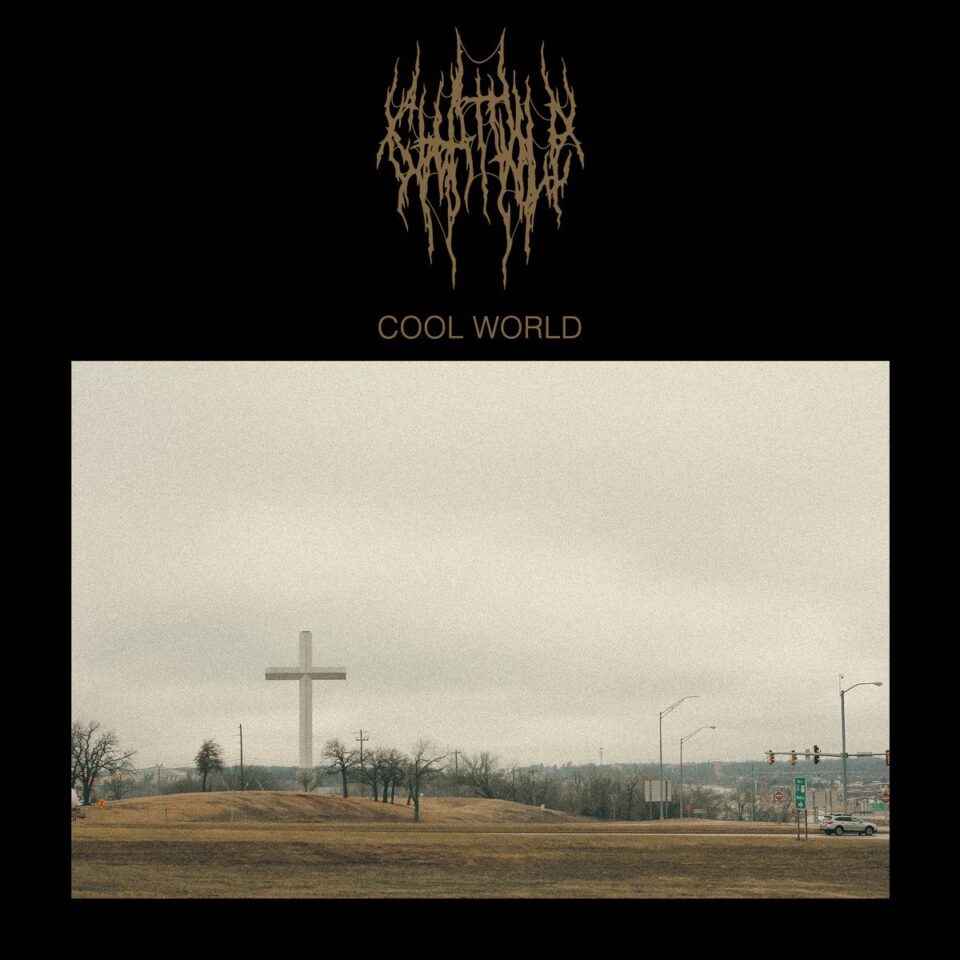
35. Chat Pile, Cool World
Chat Pile’s second album Cool World is named after a Ralph Bakshi film so ludicrous and canonically bad that summarizing it here would certainly distract from this blurb’s actual subject. You’d be forgiven for predicting a classic sophomore slump, for anticipating the band leaning into the sense of humor that’s always pushed against their terrifying sludge-rock compositions, which reflect the inner lives of the evil yet always sympathetic film characters vocalist Raygun Busch expounds encyclopedic knowledge of between songs at all of their live shows. The record’s earliest singles included the titles “I Am Dog Now” and “Funny Man.” The latter of which even opens with riffs and near-rapped vocals that veer dangerously close to the maligned nu-metal aesthetic already perceivable in their sound by anyone lacking access to the They Live glasses depicting them as disciples of David Yow and Steve Albini to noise-rock elitists.
Yet the deeper one ventures into Cool World, the harder it is to even think about something as trivial as influence. Where God’s Country saw Busch cooly railing against one of our nation’s greatest shames in our entirely manufactured housing crisis, Cool World sees him cowering at significantly vaster global injustices as they’re casually made accessible to us across mainstream social media platforms. Sure, death-metal growls—and a heavier brand of militant instrumentals to match—can be found in certain corners of the record, but what sticks with me is the record’s tortured internal monologues that frequently recall Dalton Trumbo’s Johnny Got His Gun and the film Jacob’s Ladder—the latter of which seemingly inspired Bakshi’s film’s unexpectedly nightmarish depiction of PTSD. Which, in so many words, explains how this record bridges the chasm between this current era of history that will certainly be remembered as ludicrous and canonically bad and Brad Pitt awkwardly massaging a cartoon character’s shoulders. — Mike LeSuer
Read about Chat Pile’s non-musical influences on Cool World here.
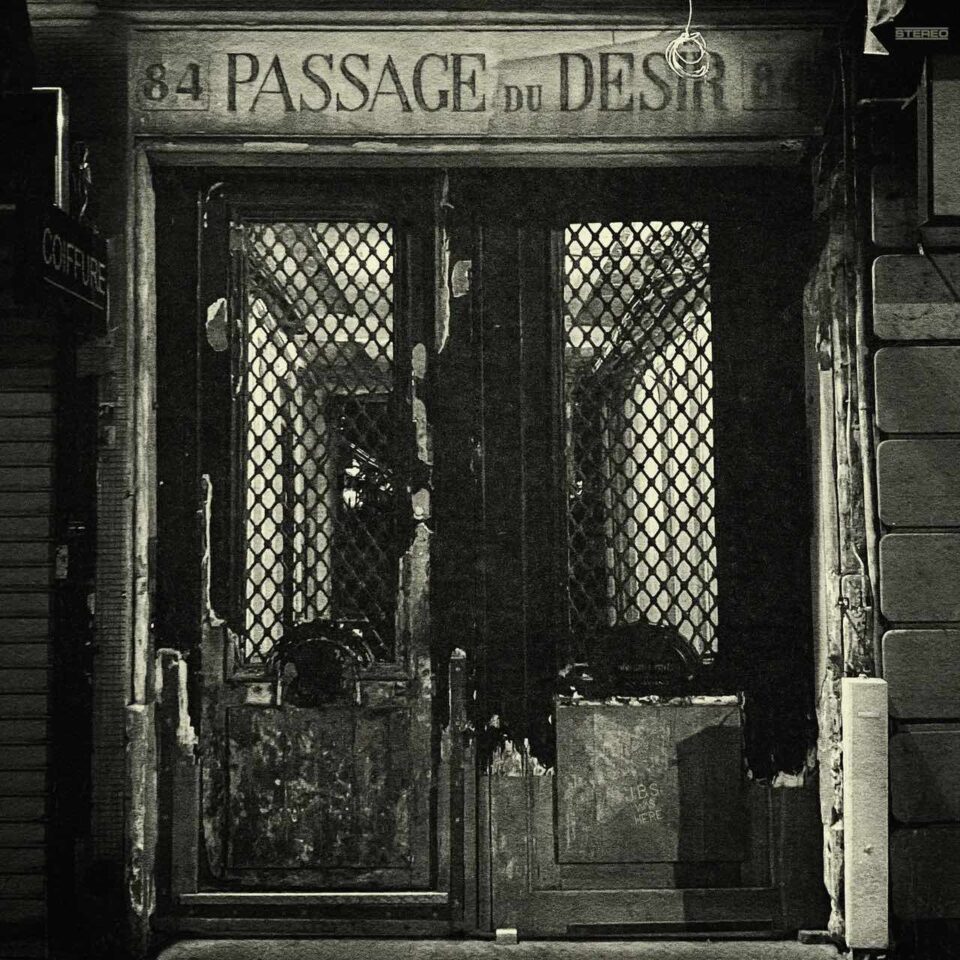
34. Johnny Blue Skies, Passage du Desir
2024 was the year that the world was introduced to Johnny Blue Skies—a dusty outlaw with a heart of gold, a soulful crooner with dirt under his fingernails, a hippie with a sly, knowing grin. Now that you mention it, that does sound a bit like Kentucky-based guitar hero and once and future savior of country music, Sturgill Simpson, doesn’t it? Must be a coincidence. In all seriousness, there’s very little to differentiate Simpson’s past work from Passage du Desir, his first record released under the pseudonym Johnny Blue Skies. But that’s far from a critique: There exist few more effective superpowers in music than Simpson’s voice, an absolute showstopper whether in the context of the synth-heavy blues of 2019’s Sound & Fury or the backyard bluegrass on his Cuttin’ Grass series.
In a way, Passage du Desir attempts to wrangle the disparate parts of his catalog into a single release. The fact that Mr. Blue Skies is able to blend the aspirational boogie of something like “Scooter Blues” with the monumental grandeur of the album standout “Jupiter’s Fairie” shows an artist completely at ease with his own contradictions. Getting a chance to see Simpson play these songs live further solidifies not only their place within his catalog, but also reveals his potential as a downright totemic songwriter and performer, whatever his name may be. — Sean Fennell
Read our review of Passage du Desir here.

33. Jack White, No Name
It’s tempting to merely say that Jack is back, but the truth is that he never left. Since planting his flag as a solo artist in 2012 with Blunderbuss, White has done consistently quality work—perhaps getting a little too prog-rock or guitar wank-y for some tastes here and there, but retaining the primal rock instincts that made us pay attention in the first place. That said, No Name is White’s best solo album and his finest effort since the White Stripes’ swan song, 2007’s Icky Thump.
The king of the riff and the only artist from his generation to score a stadium-worthy jock jam, White continues to deliver killer licks in spades on No Name, beginning with the album-opener “Old Scratch Blues” and hitting his stride with the quiet-loud riffage of “That’s How I’m Feeling.” Not just an ace guitarist, White also continues to be a fine vocalist and songwriter, empathetically delivering his words with authenticity that’ll have you convinced he’s still the real deal on tracks like the self-love anthem “Bless Yourself” and the punk-like rager “Number One with a Bullet.” No Name was initially released on unmarked white vinyl for customers of his Third Man Records vinyl subscription service before, thankfully, it was widely distributed through the usual channels. An album this good shouldn’t only be heard by the faithful. — Craig Rosen
Read our review of No Name here.

32. Merce Lemon, Watch Me Drive Them Dogs Wild
Word of mouth will always be the best way to find new music. So when Squirrel Flower—my favorite indie-rock artist of this generation—took to Instagram to congratulate Merce Lemon on her new album, Watch Me Drive Them Dogs Wild, a stream of that record was open by my next breath. I’d never heard Lemon’s music, but upon hitting play on this nine-track body of work, the first moments of the opening song, “Birdseed,” provided a succinct sonic thesis statement: delicate yet sultry vocals; acoustic strums with a subtle swing; warm, inviting vocal harmonies; lyrical imagery that’s profound in its myriad emotions. “Birdseeds between all of my teeth / I’ve been eating like the birds / So maybe I’ll grow wings / Wouldn’t that be something?” At one moment, the idea of having birdseed stuck in her chompers sounds like a nightmare, at the next she catalyzes optimism in flying free after enduring the discomfort.
Then the rest of the band comes in with twangy electric guitar and a rhythm section that effortlessly propels the song forward. Right off the bat, she presents the album as what it is: an exploration of reality through musical fantasy. “Slipknot” doesn’t lean into clown-masked heavy metal like you’d think it might, but rather depicts a tumultuous relationship held together only by its namesake, coming loose in the wake of a powerful guitar solo. Lemon’s voice dominates the title track, expressing tones without any clear form, as if she’s reacting to the dogs she’s driving wild—or, rather, the love interests who never seem to understand or appreciate her. And while those thoughts weigh on her, she’s driving her fans wild in the best way possible. — Harry Levin
Read our review of Watch Me Drive Them Dogs Wild here.

31. Beth Gibbons, Lives Outgrown
Like My Bloody Valentine’s Loveless and Roni Size’s New Forms, Portishead and their enervating vocal centerpiece, Beth Gibbons, created their own sorrow-filled, sinister wall-of-sound genre with the birth of trip-hop and the spooky-beyond-compare Dummy in 1994. Having nothing to do (as far as I know) with the celebration of that album’s 30th anniversary this year, Gibbons has morphed from that vibe into her own unique artform—a weary-but-fresh and tantalizingly atmospheric brand of subtly dramatic Muzak that breathes deep much of the same rarified air as Portishead without being too tied up in moody electronica.
Start with “Floating on a Moment” and the vocalist’s sloe-gin take on growing up and growing old (“All we have is there, here, and now,” Gibbons sings). With the track’s roomy ambience of pedal steel guitars, hammered-upon dulcimer, and simmering Hammond organ hum, “Floating” could pass for an update on Fairport Convention’s Lief & Liege with its modern sounds in country music. Certainly the whispery “Oceans” and the minimalist classicism of “Tell Me Who You Are Today” could’ve formed a blueprint for Dummy 2 if she’d so desired. But Gibbons skips over nostalgia while sticking to the lyrical subject matter of age and melancholia about time passing on new selections such as the baroque “Lost Changes,” the dissonant strains of “Burden of Life,” and the tilt-a-whirl crunch of “Rewind.” — A.D. Amorosi
Read our review of Lives Outgrown here.
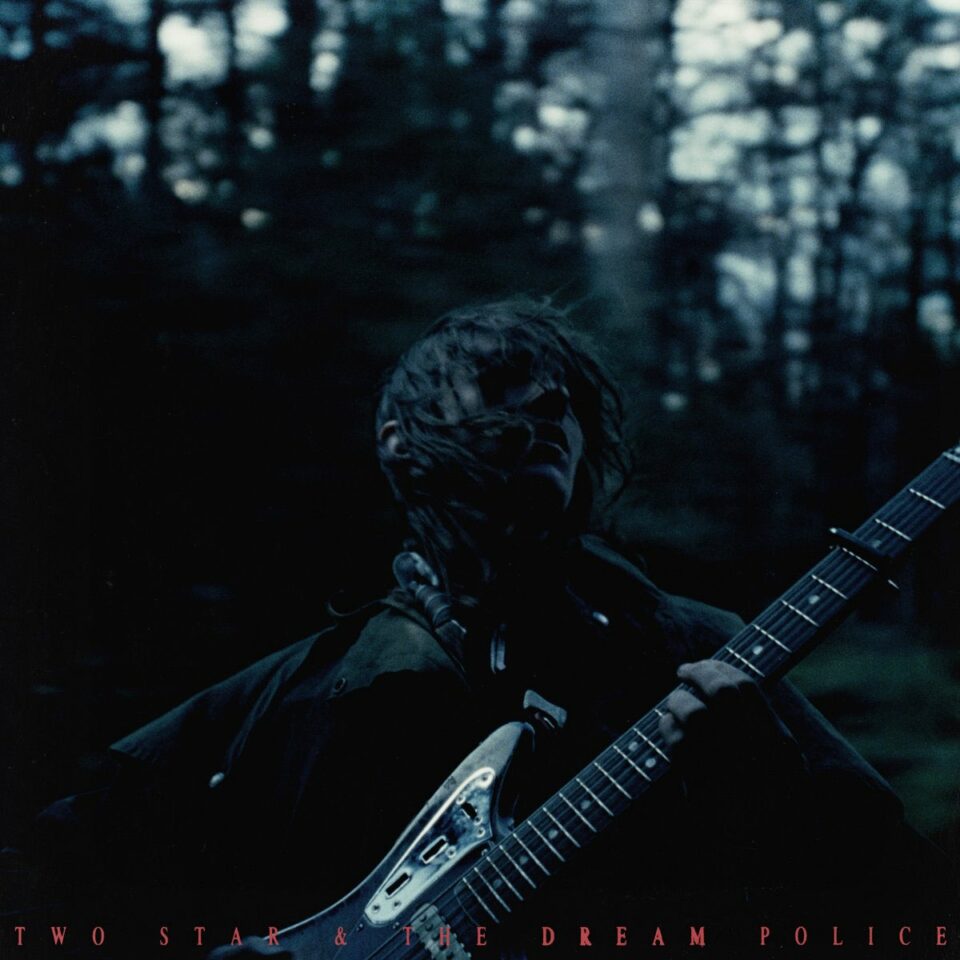
30. Mk.gee, Two Star & the Dream Police
Mk.gee is one of those artists who was always percolating just beneath the surface. A bevy of independent releases and a run as Dijon’s right-hand accomplice put him on the radar of real heads, and with his subtly epic debut album Two Star & the Dream Police, he officially carved a path to stardom (or at least the mid-tier indie accomplishment of touring without losing money and the rare accomplishment of an SNL appearance prompting parents everywhere to text their children “Do you know Mick Gee?”). Describing the album is sort of like trying to explain why the first sip of coffee in the morning is the best. There’s not a ton of science behind it, but it’s a feeling that’s objectively true and impossible to ignore. The songs are slippery, functioning as perfect background music to do almost anything to while also demanding exacting attention.
There are little things here I’m still catching on my 200th listen. Mk.gee has become one of our great songwriters, with an ability to make his pain feel universal, and our pain like the most important thing in the world. This isn’t pathos for pathos’ sake, though—the music is urgent. The melodies stay with you for days, but if you don’t grab ’em, they dissipate like quicksand. The album slaps you in the face and then dances off into the sunset, leaving you to wonder what the hell just happened. It doesn’t even feel important to single out any individual song while writing this impassioned blurb. That’s because this is an album, baby. We’re back. Each track is important in and of itself and to the greater whole. — Will Schube
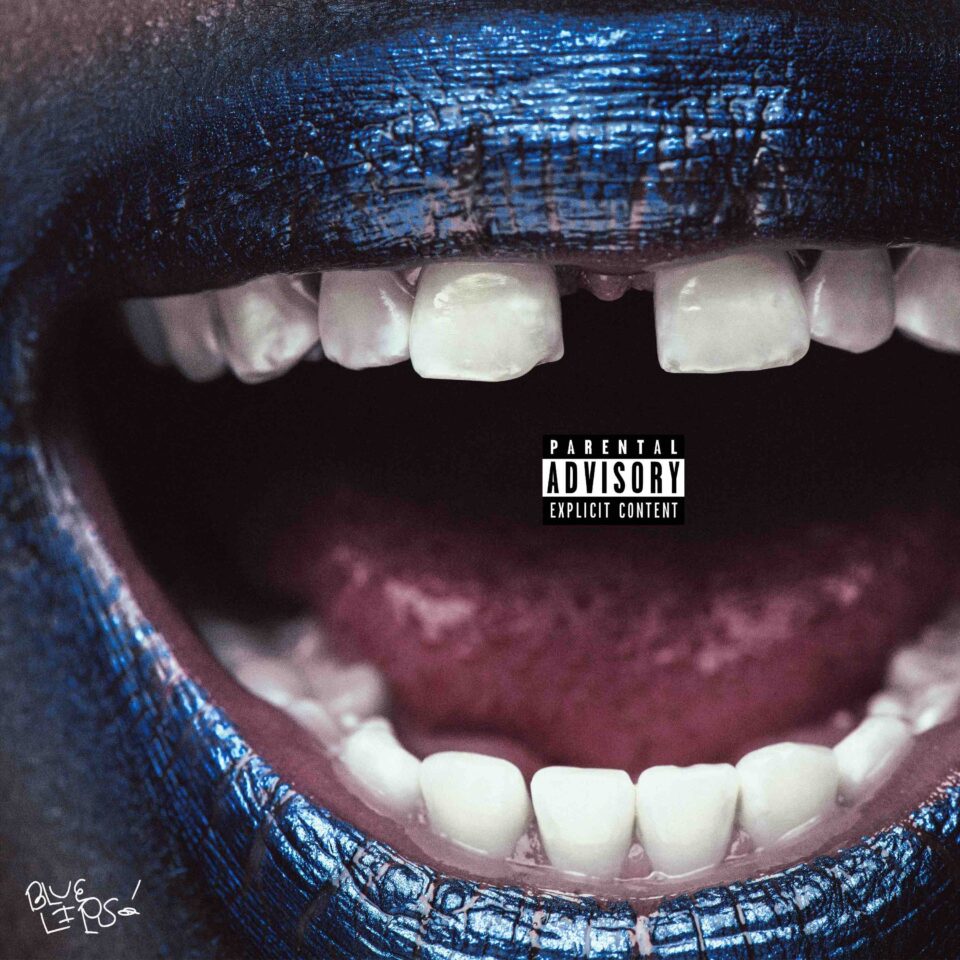
29. ScHoolboy Q, Blue Lips
With his new album, LA rapper ScHoolboy Q returned to his experimental West Coast gangsta-rap roots established when he first emerged from Kendrick Lamar’s Black Hippy group in the early 2010s. Each successive release has been a significant turn for Q, and Blue Lips is no different. It navigates the private, public, and outsized personas fit for an established rap artist following in the footsteps of his West Coast forebears. He gets cinematic with his confessionals on “Blueslides” and then scorches the earth on the three-act “oHio” where, abetted by Freddie Gibbs, he coils jazz, funk, and rap styles around tales of an irritable spouse, credit card braggadocio, and getting head in Paris. On the very next track he turns around and repeats a ridiculous hook that consists of the double-holy sextet of “Marijuana, hydro, pussy, hoe, ass, titties.” It’s stylistic whiplash, but he maintains stability across a wild 18 songs.
The production here feels like the equivalent of a weekend brownout where your vision blurs and you’re passively game for just about anything. The adept sequencing also helps, as it did on 2016’s Blank Face LP. Q never leans into one style, as the atmospheric and smoky “Nunu,” for example, sits alongside the synthy strut of “Back n Love.” Songs like the Rico Nasty–featuring “Pop” bring the aggression and grit of the streets, whereas later in the album he incorporates samples of jazzy soul (“Lost Times”) and even a psychedelic sample of Pat Johnson’s “Love Brought You Here” for “Germany 86.” He expands the range of Cali rap without sounding like a tired and bloated mess, and that’s damn impressive. ScHoolboy Q can roll up his lavish lifestyle into a singular song, but he’s also not afraid to burn that up for the high of a series of well-plotted album plot twists that ratchet up dopamine levels. — Kyle Lemmon
Read our review of Blue Lips here.
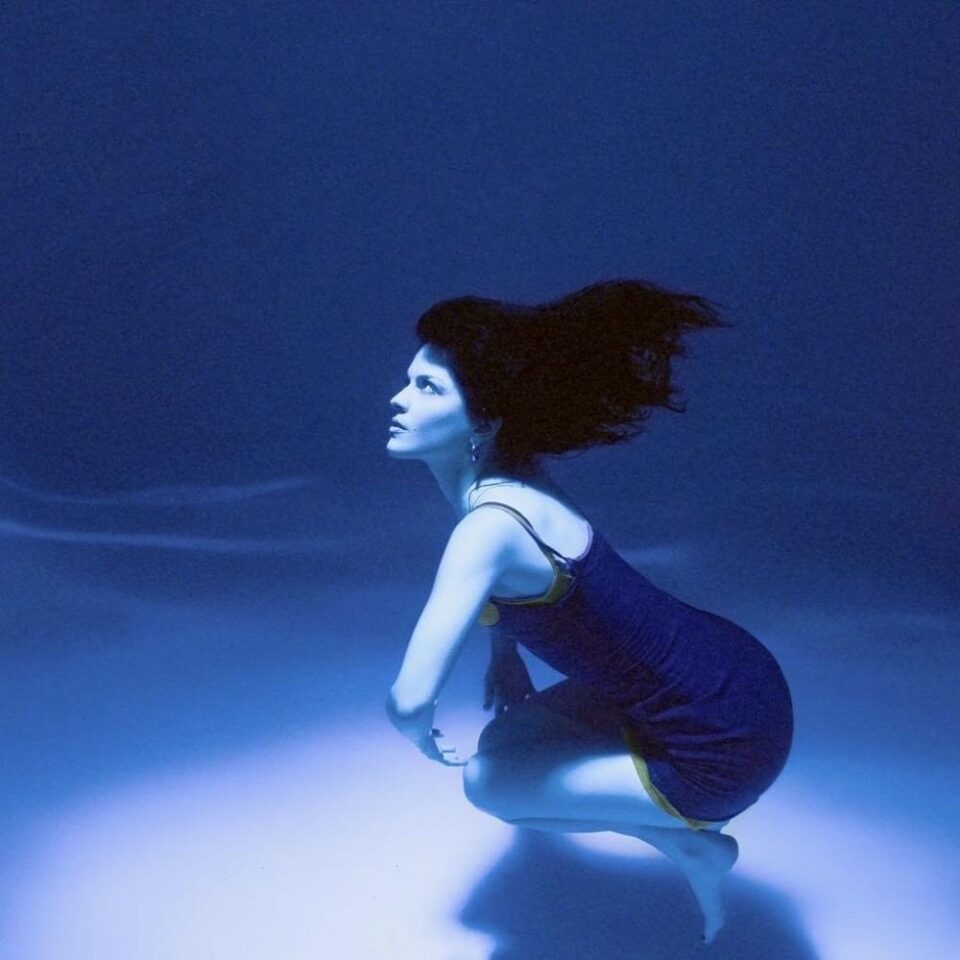
28. The Marías, Submarine
Submarine is seemingly The Marías’ first considered foray into the pop world. It showcases the band’s ability to experiment with genres like indie rock and electronica as confidently as they do with Latin trap, jazz, and R&B, blending them seamlessly into a polished pop package. There’s no doubt that vocalist Maria Zardoya’s time working with Bad Bunny on 2022’s “Otro Atardecer” was a significant influence here (“Ay No Puedo” even sounds like a well-made facsimile of a Bad Bunny banger), as she borrows that distinctive clave rhythm often found in Benito’s music. Its catchy style cemented Submarine into 2024 summer playlists everywhere, with plenty of future beach trips certain to be soundtracked by the record, as well.
Submarine is melodic, introspective, and intriguing, and the added juxtaposition of Zardoya’s romantic split with songwriting partner Josh Conway gives the record a muted Rumours-like quality (the songwriting duo’s relationship may not be as dramatic as Fleetwood Mac’s foursome, but it’s still interesting, as drama always is). This aura of intrigue adds to the mythos of Submarine, but the music itself is what gives it staying power. The lyrics may still be among the project’s weakest points, but that’s mostly due to the complex arrangements and polished production overpowering and outshining them (Zardoya’s vocal style has always tended to blend in with the instruments anyway, so this seems by design). After 2021’s Cinema introduced the band as bedroom-pop standouts, Submarine showcases The Marías’ potential as a full-blown pop group inarguably capable of crafting catchy pop music. — Juan Gutierrez
Read our review of Submarine here.

27. Kim Deal, Nobody Loves You More
Nobody Loves You More is technically Kim Deal’s solo debut, but this unruly, tender album feels more like a culmination of her decades-spanning indie rock career. She spent years making it happen, bringing together previous collaborators from her days with Pixies and The Breeders—like her twin sister Kelley Deal and the late, legendary producer Steve Albini—to record a set of songs she’s been working on since 2011. These tracks are honed with a hard-won perspective: Deal wrote most of them while taking care of her parents, and then in the wake of their deaths.
In mourning this dual loss, her lyrics take life on the chin and still find softness. Early single “Coast” finds a silver lining in shattered plans and a dismal beach trip over muted horns, while “Disobedience” rages against the dying of the light with a pointed “Can you hear me now?” sung over a driving beat. In typical fashion, Deal completely disregards the trappings of genre: dreamlike strings dance on “Summerland” and a wafting pedal steel makes “Are You Mine?” sound like a Santo & Johnny slow dance. Nobody Loves You More often has a softer tone than most of her previous work, but its big, explosive love is the same you’ll see on Kim Deal classics like “Bam Thwok” and “Do You Love Me Now?”—distilled now through grief and time, but shining all the same. — Annie Parnell
Read our review of Nobody Loves You More here.
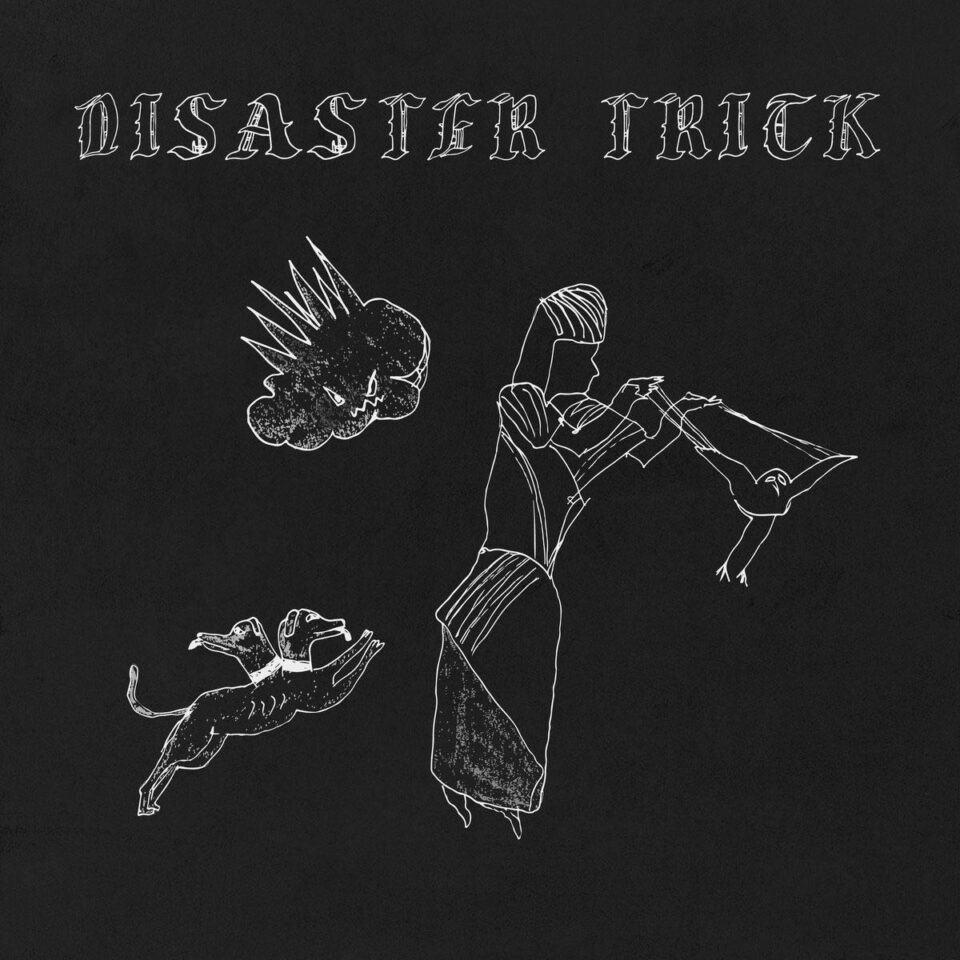
26. Horse Jumper of Love, Disaster Trick
Once every so often, I get this melody and vocal line stuck in my head. I am one of the worst singers that has ever sung, but I put on my best voice and mutter, “Today’s iconoclast, ba da da da da da.” It takes me hours to place it, and then all of a sudden I remember: it’s one of my favorite songs from one of my favorite albums of 2024. It’s the third track from Boston-based Horse Jumpers of Love’s fifth studio album. The song is called “Today’s Iconoclast,” the album is called Disaster Trick. I am not sure why I can never remember the song; it’s one I listen to often and consistently enough to recognize as a favorite.
It’s a selective amnesia due to the band not being one I associate with hooks—though I’d hardly call the beginning of “Today’s Iconoclast” a hook. Rather, it’s sticky and cerebral, the kind of thing that gets stuck in your noggin and refuses to leave no matter how many times you try to jar it loose. Disaster Trick feels warm in this way, the sort of thing you can be listening to for the first time or the 50th and still find moments that feel like friends, and others that are delightfully new. The album is a lower-case letter—never brash or overbearing, small in scope. But it’s in this restraint that Disaster Trick hits hardest: the crunching guitars of “Lip Reader,” the finale of “Nude Descending” snapping like a rubber band pulled too taut. And, of course, how those two aforementioned lyrical words appear in my head whether or not Disaster Trick is anywhere in my orbit. Perhaps “today’s iconoclast” is the friends we made along the way. — Will Schube
Read our review of Disaster Trick here.

25. Jessica Pratt, Here in the Pitch
Jessica Pratt’s music disarms you and then unsettles you. On her latest project, her performance gently takes us by the hand, blissfully leading us into the unknown—but her songwriting follows like a shadow reminding us of anxiety in the wake of uncertainty. On album closer “The Last Year,” Pratt makes the inescapable elongation of time sound like a goodnight kiss: “And wouldn’t you say the past’s no longer quite / As near as you’d like, and it’s gonna hurt you now.” The album’s fuzzy, warm recordings with Pratt’s high-pitched plush vocals recall the quilted melancholy of Buddy Holly and the Crickets, The Everly Brothers, or Astrud Gilberto. Here in the Pitch uses its soft, familiar sound to cushion untangleable truths.
The LA-based songwriter’s fourth album balances the shadows and cascades of sunlight through shifting curtains of thought. The project’s darker inspirations are subtler than her admiration for ’60s pop music. Drawing on Southern California’s seedy past, Pratt immersed herself in literature about Charles Manson and the dark forces in the history of Los Angeles. Notes of fear, paranoia, and longing are weeds that mix among Pratt’s lush bouquet, honing in on the surreal unease where memories, dreams, and nightmares become indistinguishable. “Some evil innocence, wild century can’t express / A gesture left in summer’s mind,” she sings on “By Hook or by Crook” over sighing percussive beads and acoustic guitar. “Autumn’s come to find / And it’s the end of the dreams again.” Her vocals float away like a lost balloon. — Margaret Farrell
Read our review of Here in the Pitch here.
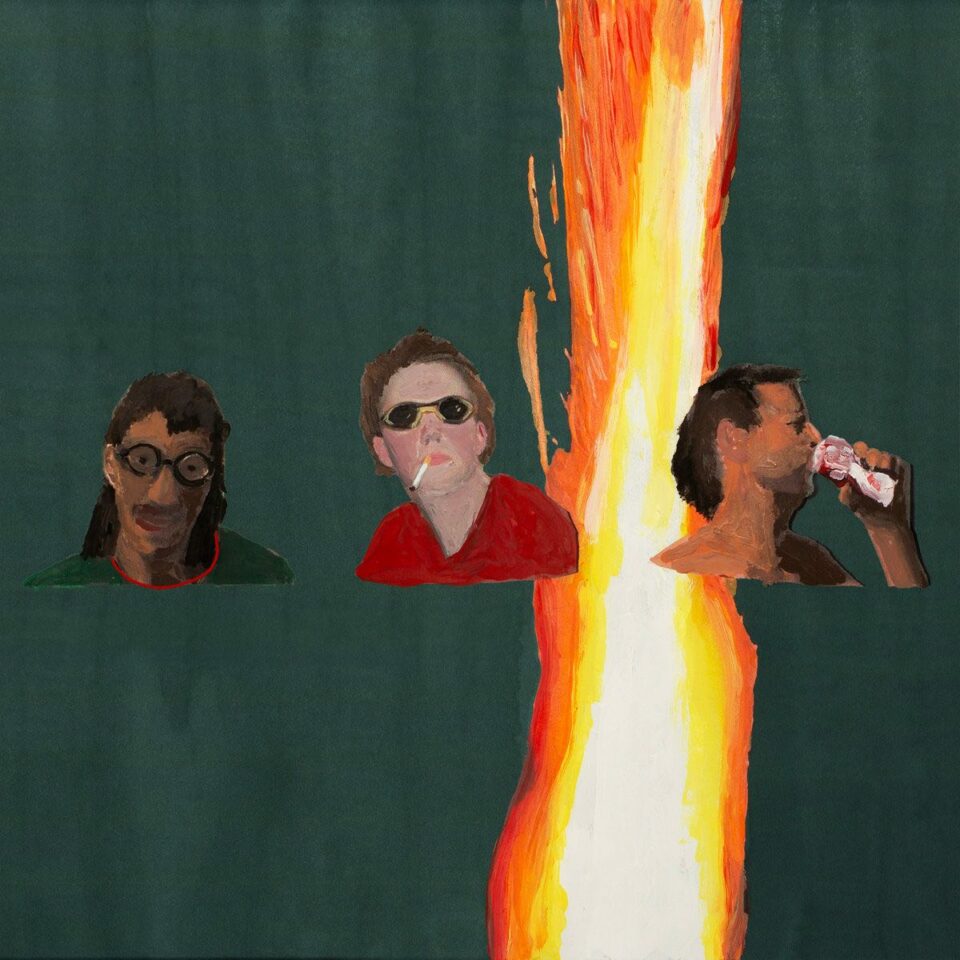
24. MJ Lenderman, Manning Fireworks
MJ Lenderman is the ideal postmodern rock figure. So much so that his origin story, which sounds apocryphal but is very much true, begins with the help of Guitar Hero, itself a kind of acknowledgement of the antiquated notion of rock and roll as cultural centerpiece. Equal parts scuzzy slacker and doe-eyed romantic, Lenderman is very much the skinny, ragdoll heartthrob of the moment, and Manning Fireworks is, to this point, his masterpiece. Coming off the breakout success of his 2022 album Boat Songs and subsequent 2023 live record And The Wind (Live and Loose!), his latest doesn’t so much reinvent as it does refine. Manning Fireworks is a masterclass in tight, ragged songwriting, never missing a chance to cut the tension with a blistering guitar solo or full-band freakout.
When you pair Lenderman’s unique eye as a lyricist, which finds the middle ground between playfully obtuse and agonizingly precise, you get a songwriter whose quiet bravado feels earned and refreshingly unself-serious. His tales of hapless and delusional men (and they’re almost exclusively men) feel less like short stories and more like winding, dive-bar anecdotes overheard at closing time. Of course, Lenderman also remains the Tim Robinson of indie rock, his tossed-off, brilliant one-liners almost immediate fodder for memeification by a certain corner of the internet. To truly love Manning Firework is to know that, in our heart of hearts, we all have a house boat docked at the himbo dome. — Sean Fennell
Read our review of Manning Fireworks here.
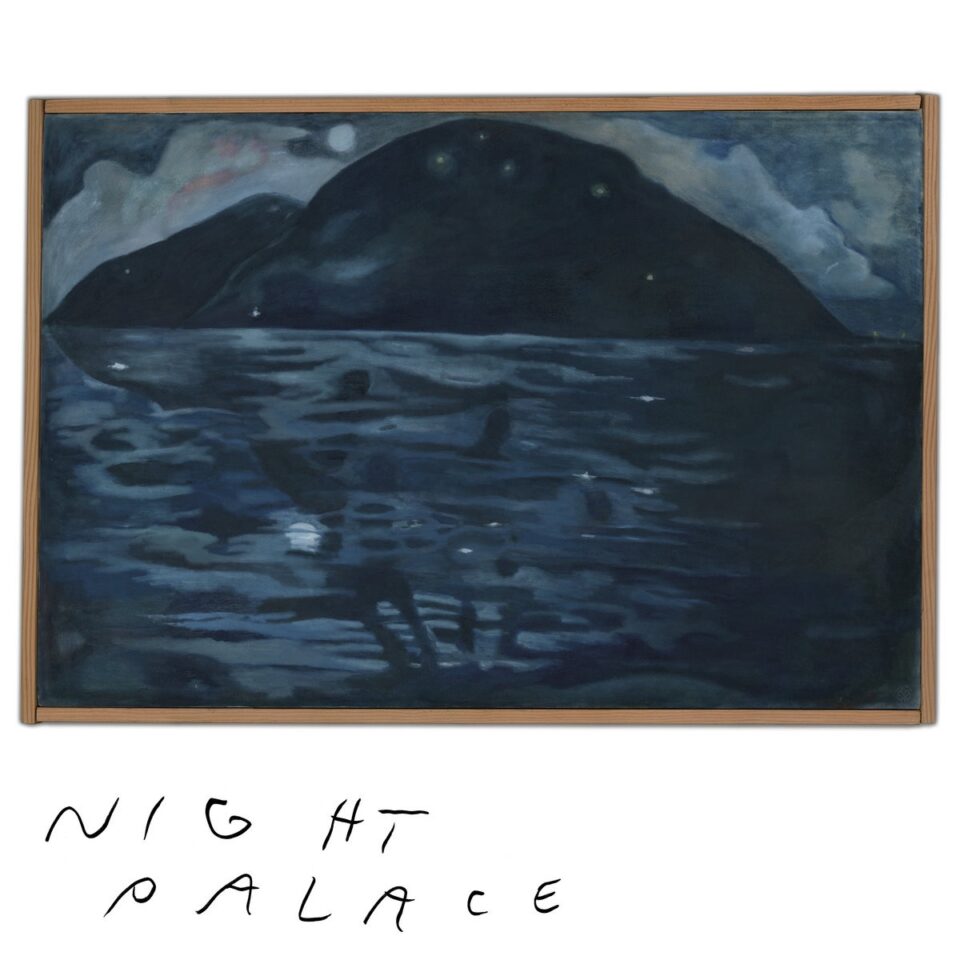
23. Mount Eerie, Night Palace
No matter what you might want from a Phil Elverum album—spoken-word pontification, striking emotional naturalism, expansive folk experimentations, distortion-fueled injunctions—that album rests inside Night Palace. The storied Washington songwriter’s latest full-length and first under the moniker in six years may well be his newest magnum opus, in part because it flits between all of Elverum’s different modes of operation with such finesse and cohesion that it acts as grand encapsulation, a self-portrait of disarming clarity and vision.
Here, the droning soundscapes (“Breaths”) sit alongside the noisy freakouts (“Swallowed Alive”), and the transcendental musings (“I Heard Whales (I Think)”) give way to unhurried longform poems (the double-album’s 12-minute-long centerpiece, “Demolition”). At its most self-reflexive, on “Writing Poems,” Elverum sums up the sprawling place the record holds best: “A day is followed by another day / There’s a procession of new sounds always passing through.” As on all of Elverum’s best work, Night Palace is a stirring revelation where every new listen feels like just a scraping of the surface, its multitudes taking on new meaning with each passing day. — Natalie Marlin
Read our review of Night Palace here.
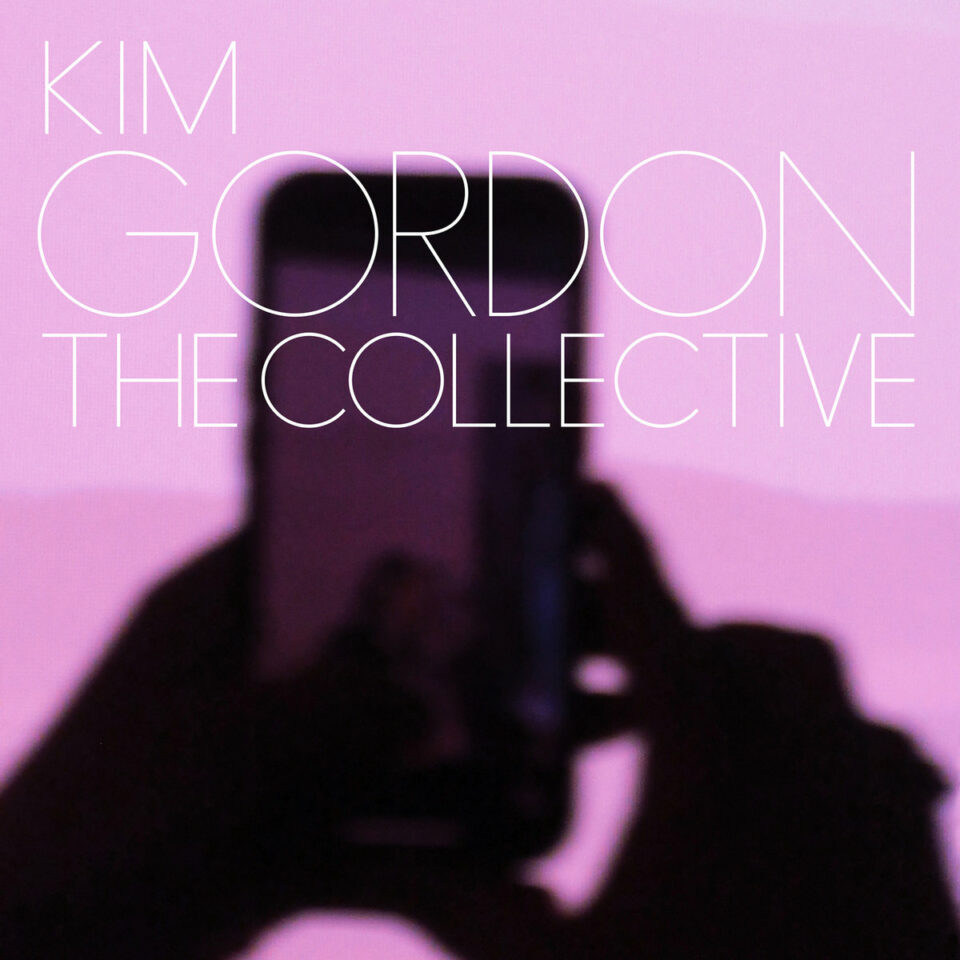
22. Kim Gordon, The Collective
Since the end of her longtime band Sonic Youth in 2011, Kim Gordon has pursued a path of unpredictability—first through the improvisational drones of her experimental guitar outfit Body/Head, and then with the release of her avant-garde pop solo debut No Home Record in 2019. Yet even given her background as an iconoclast, I still think it’s safe to say none of us expected her to release something like “Bye Bye,” the first single from her sophomore album The Collective. A hybrid of noise rock and industrial trap, the track sets squealing guitar against an 808 pattern one might expect to hear on a Playboi Carti album, with nigh-dadaist lyrics listing items being packed for a trip, sung in Gordon’s familiar deadpan: “Blue jeans, cardigan, purse, passport, pajamas, silk.”
Much like that disorienting four-minute teaser, The Collective is bizarre and brilliant, unraveling genres and feeding them through sheets of amorphous distortion. Building on the playful experimentation of her debut, Gordon goes darker and gets weirder while sharpening the songwriting, turning out social commentary via menacing din on “I’m a Man,” industrial shoegaze on “Tree House,” and dangerous levels of bass on “The Believers.” Yet through the squalls and squeals, pulses and throbs, Gordon’s effortlessly oblique beat poetry remains at the center, the adhesive keeping together the album’s myriad chaotic moments while branding it as a work wholly her own. It’s a masterpiece of abrasive absurdity, the kind of irreverent innovation that only someone as cool as Gordon can pull off. – Jeff Terich
Read our review of The Collective here.
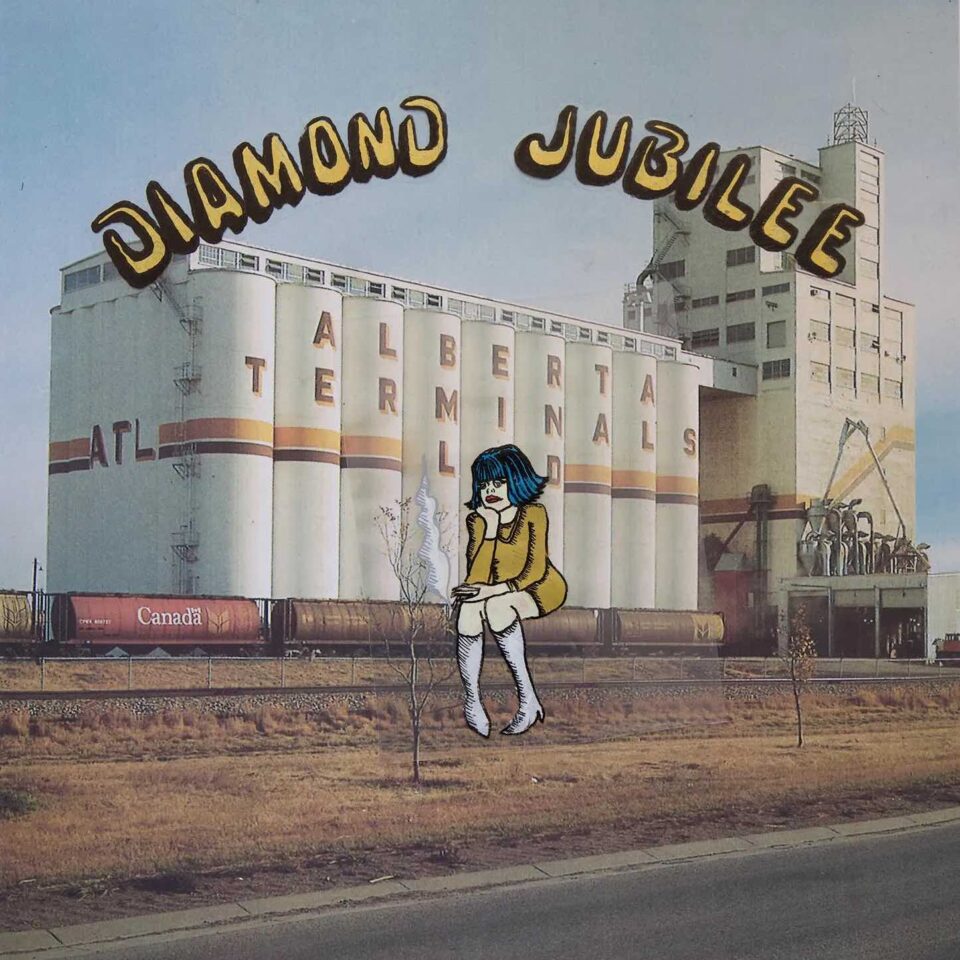
21. Cindy Lee, Diamond Jubilee
A primer on the Diamond Jubilee phenomenon for the uninitiated: Cindy Lee is an alter ego of sorts for Patrick Flegel, who once wrote songs and played guitar in the cult Canadian post-punk band Women. That group released two very good albums of wiry, anxious, experimental guitar music, then broke up after an on-stage fist fight only for several of the band members to reassemble under the new name Preoccupations (well, after calling it something different first). At this point, Flegel dove into their Cindy Lee origin story, releasing albums of powerful pop concoctions buried beneath walls of sound and experimental collages of noise.
The Cindy Lee aesthetic is deeply informed by the life and music of Karen Carpenter. 2015’s What’s Tonight to Eternity is the closest hint Flegel offered as to where they would head with Diamond Jubilee, but nothing within their discography—either with any of their bands or as a solo artist—could prepare listeners for the ecstatic brilliance of Jubilee. Initially released exclusively as .WAV files available via a Geocities website for a $30 suggested donation and as a two-hour YouTube video (and later made available on Bandcamp), the album’s barrier to entry was purposefully at odds with the ease and options of our streaming era. Despite this, the album became a breakthrough of sorts, thanks to the clarity and cohesion Flegel brings to this project. It’s not only one of the best albums of 2024, but a staggering mission statement from a restless pop auteur. — Will Schube

20. Beyoncé, Cowboy Carter
Exactly what would it take for Beyoncé—the most-nominated artist in the history of the GRAMMY Awards—to finally claim the Recording Academy’s Album of the Year prize? If you engineered a Beyoncé album for exactly that purpose, it might sound an awful lot like Cowboy Carter: Loaded with acoustic (read: “real”) instruments, hewing close to traditional song structures, awash in signs and signifiers of roots music authenticity, the eighth Beyoncé solo album bears all the hallmarks of earnest institutionalism. It even finds cameo space for Willie Nelson, Dolly Parton, Chuck Berry, and a Beatle. How GRAMMY voters receive it remains to be seen, but for now, this much is certainly true: Cowboy Carter is hardly just evidence of Beyoncé acquiescing to the rules of the game.
The second act of a project that began with Renaissance, the singer’s annotated dance music extravaganza from 2022, Cowboy Carter is the clearest witness yet to Beyoncé’s vision and skill as a conceptual thinker: It’s an album that adorns itself in the trappings of country music for the ultimate purpose of interrogating what quote-unquote country music even is, asking big questions about where we draw genre boundaries and who we’re trying to exclude. It’s also just a great Beyoncé album, and, improbably, one of the best albums about Beyoncé. In the grand spirit of American myth-making, she delves deep into her own origin story, explaining how the South, for her, has been both womb and crucible. As is customary with Beyoncé, there’s still plenty of brand control exerted, yet somehow that only adds to the intrigue of Cowboy Carter—a deep, rich, subversive, all-American classic. — Josh Hurst
Read our review of Cowboy Carter here.

19. Nick Cave & the Bad Seeds, Wild God
A downright cruel battery of tragedies have befallen Nick Cave over the years, with the deaths of two of his sons standing among the most devastating—but by no means the only—examples. It’s beyond human comprehension how he’s not given up on life; even more astonishing is his preternatural ability to become an even stronger, more confident, and more spiritually devoted artist. In fact, his latest accomplishment Wild God is even filled with joy and humor, ensuring the record isn’t a life-draining listen from start to finish (“Kris Kristofferson walks by kicking a can / In a shirt he hasn’t washed for years,” Cave sings on “Frogs” without deviating from his normal vocal delivery). Meanwhile, the Bad Seeds and additional guests sing with an exuberance that very closely resembles the gospel-choir uplift embedded into Spiritualized’s later work.
Wild God is an instruction manual many of us needed over the past two months, in particular, to learn how to process grief. Cave doesn’t want to be anyone’s steely-eyed pastor or cult leader (even though he could’ve made a great one). Surely, the worldly Cave is well-informed about the widespread, demented, and self-injurious yearning for strongmen across the world, and the accompanying rise of authoritarian regimes. All of which to say that Cave, intellectual and artistic genius that he is, doesn’t have the answers to all of the world’s problems. But he is one of the most fluent and revered musicians on the subject of loss. With that in mind, when you’re overcome with grief amid the tumult we need not detail, don’t search for an instructional YouTube video on how to cope with it. Wild God is a far more worthy star to follow in these dark times. — Kurt Orzeck
Read our review of Wild God here.
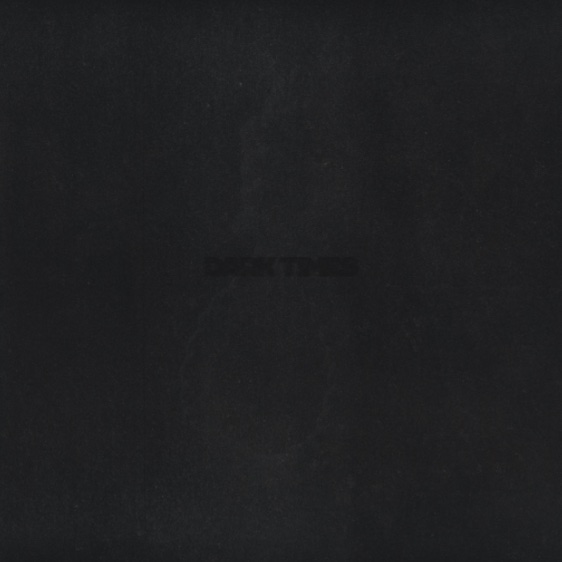
18. Vince Staples, Dark Times
In the years since his summer-ready 2018 record FM!, Vince Staples’ music has plunged ever deeper in the opposite direction, trading in the morbid undertones of that album’s sunny sounds for a more prominent weariness. The trajectory comes to a head on the Long Beach rapper’s appropriately named sixth album Dark Times, marked by an enveloping mournfulness at the costs and sacrifices of his continued ascendence.
Staples’ lyrics have rarely been tighter or more thematically cohesive, even when his voice sounds heavy with fatigue recounting messy beefs and friendship fallouts on “Shame on the Devil,” or the violent financial pressures of hustle culture on “Little Homies.” In the brief spells where the beats land like dark clouds parting (such as on the standout West Coast throwback banger “Étouffée,” or the sing-song interstitial track “Justin”), Staples’ words linger on the shadows they cast—deception, aggressive demands on his creative direction, and losing “a hundred friends” to gang violence. Yet all the grimness emerges with the utmost clarity of purpose; on closer “Why Won’t the Sun Come Out?” Santigold muses on the nature of creativity as interpersonal connection, an extension of the “dark and beautiful and light at the same time” on “the path that humans are meant to be” following. Through laying bare all that darkness, a course to light can be unearthed. — Natalie Marlin
Read our review of Dark Times here.
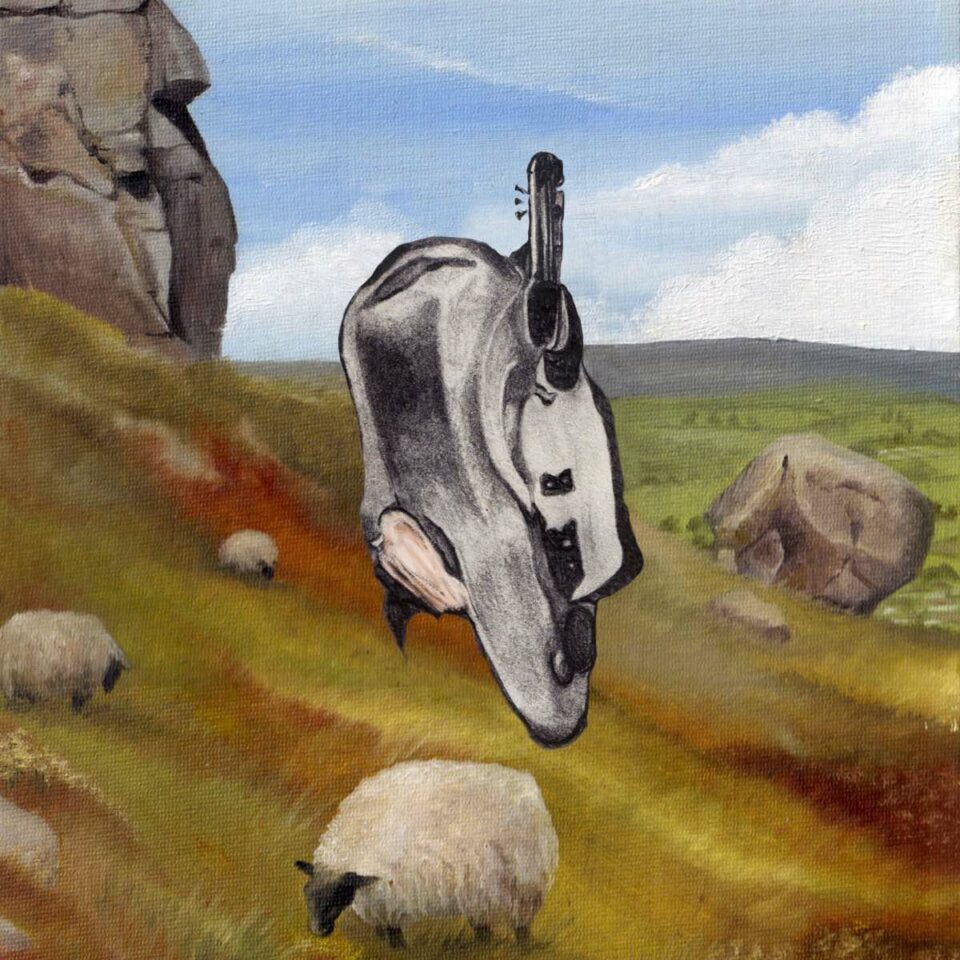
17. English Teacher, This Could Be Texas
It’s rare for a young band to have a clear vision for their debut album, but UK alt-rockers English Teacher beat the odds with style and audacity. This Could Be Texas slaloms cleverly from genre to genre as vocalist Lily Fontaine pontificates insecurities, inequality, and general British government incompetence. The group successfully melds post-punk to other genres that subvert classic assumptions about them, innovating within the lane of post-post-punk. The group’s big breakthrough came by way of their 2021 viral hit “R&B,” which was snuck into and reimagined for This Could Be Texas. The latest version of the track swaps the original’s rawness for an off-kilter feel with an added polish of Sonic Youth–like juju.
Fontaine’s languid vocal style, though, is totally relaxed and shines most when it becomes energetic and sardonic—as heard on “Not Everybody Gets to Go to Space,” with her cool, inconspicuous jab at Elon Musk. Still, English Teacher’s genre identity is multitudinous and can hardly be compared to one band. The title track traverses spoken word and prog rock while “Mastermind Specialism” meddles in acoustic folk. For the less adventurous, the experimental side of English Teacher may be too much. Even so, there are still enough conventional-leaning post-punk tracks to please even the pickiest of listeners. Yet what makes this album great is the group’s desire to be bold and daring. — Juan Gutierrez
Read our Breaking feature with English Teacher here.
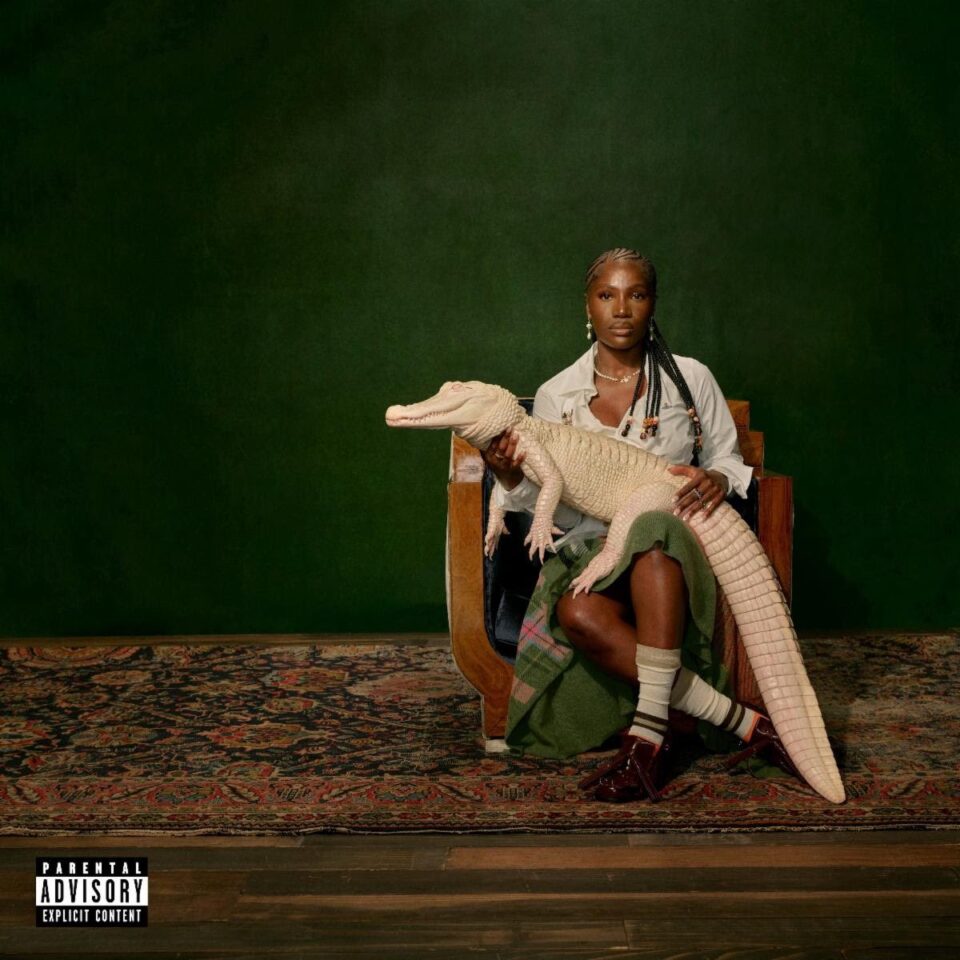
16. Doechii, Alligator Bites Never Heal
On Doechii’s debut mixtape Alligator Bites Never Heal, the Tampa-born TDE star seems to be discovering her ideas as they come out of her mouth. It’s a constant unfurling of thoughts, a connection that’s forged through her inimitable style as a lyricist and storyteller. In an interview with Rolling Stone earlier this year, she confirmed this philosophy, explaining that “sometimes the best music that I create is a conversation with me and God. It’s almost like another form of prayer. It is therapy. It is when I’m being vulnerable and I’m really working out my own thoughts and feelings on the beat,” she shared.
It’s what makes Alligator Bites one of the most exciting albums of the year, and Doechii one of the most thrilling mainstream breakthroughs in music across 2024. “Y’all are experiencing me come to the same realizations,” she added. “We’re both experiencing it at the same time.” These moments of revelation provide Alligator Bites with the moments that linger longest, but just because Doechii gets introspective doesn’t mean she doesn’t know how to have a helluva time, too. “Nissan Altima” features some Detroit techno synths and rumbling bass that bounces against Doe’s elastic flow. Her ability to go high, to reckon with heady, weighty topics, is why she remains one of rap’s most tantalizing stars. It’s her ability to take it low—yes, all the way down to the floor—that makes me wanna dance until I’ve run out of sweat. Both of these things are of equal import. — Will Schube
Read our feature with Doechii here.
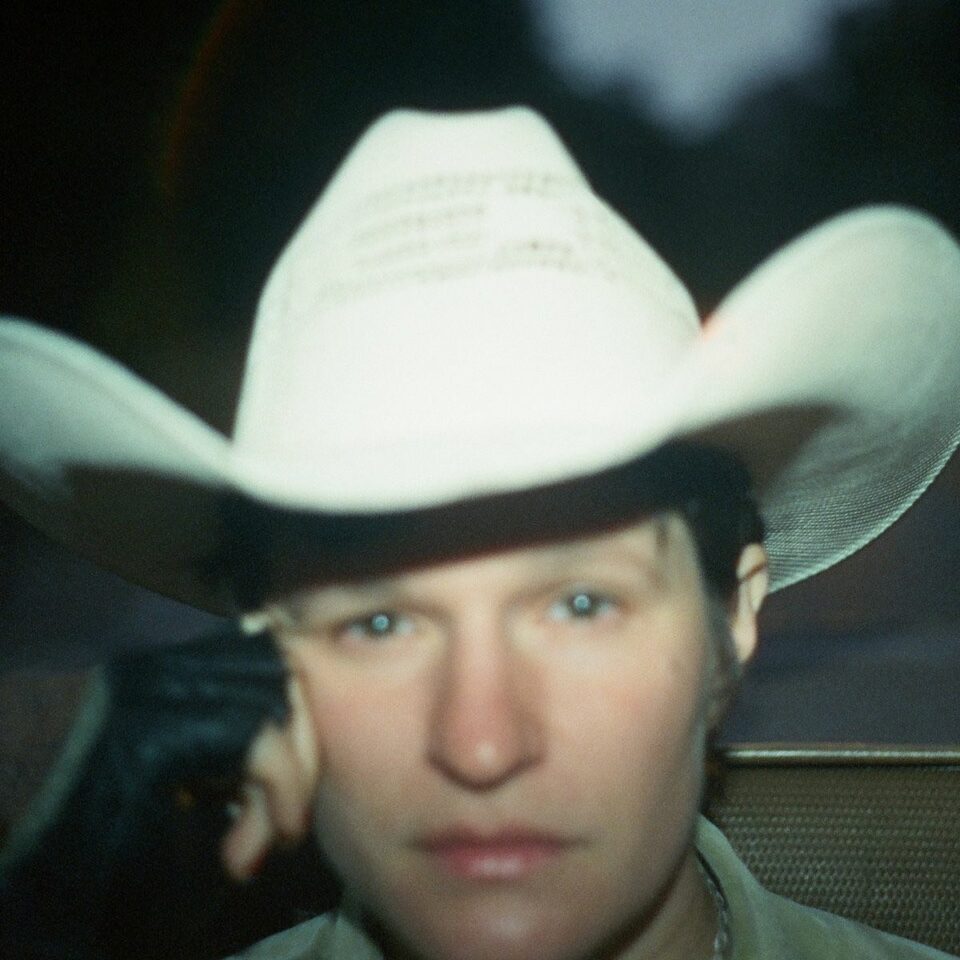
15. Adrianne Lenker, Bright Future
The myth of Adrianne Lenker has never been a straightforward one. As both a solo artist and primary songwriter for Big Thief, her music can oftentimes feel impenetrable, favoring winding narratives and allusive meaning over anything concrete, and Bright Future is no different. This a record of unhurried charm—whether it’s in the wide-eyed pathos of opener “Real House,” the lilting harmonies of “No Machine,” or the ramshackle guitars on the breathtaking “Free Treasure,” Lenker is tweaking, ever-so-slightly, the framework of her primary band to incredible results.
A driving force in this transformation is her incredible backing band on this album, which includes Twain’s Mat Davidson, Swedish multi-instrumentalist Josefin Runsteen, and songwriter Nick Hakim, all of whom bring their unique sensibilities to what is ultimately less a solo album than a different sort of collaboration for Lenker. This is most evident on fan-favorite “Vampire Empire,” a song Lenker released last year with Big Thief, but which is given new life here as a kind of rickety backyard ditty. But Bright Future is at its best when it embraces the cosmic poetry and unabashed vulnerability of its creator. Even the record's sillier moments (looking at you, “Evol”) are held together by an artist who’s clearly unafraid to put herself out there again and again, a reminder of how rare a talent and personality Lenker has become over the last decade. — Sean Fennell
Read our review of Bright Future here.
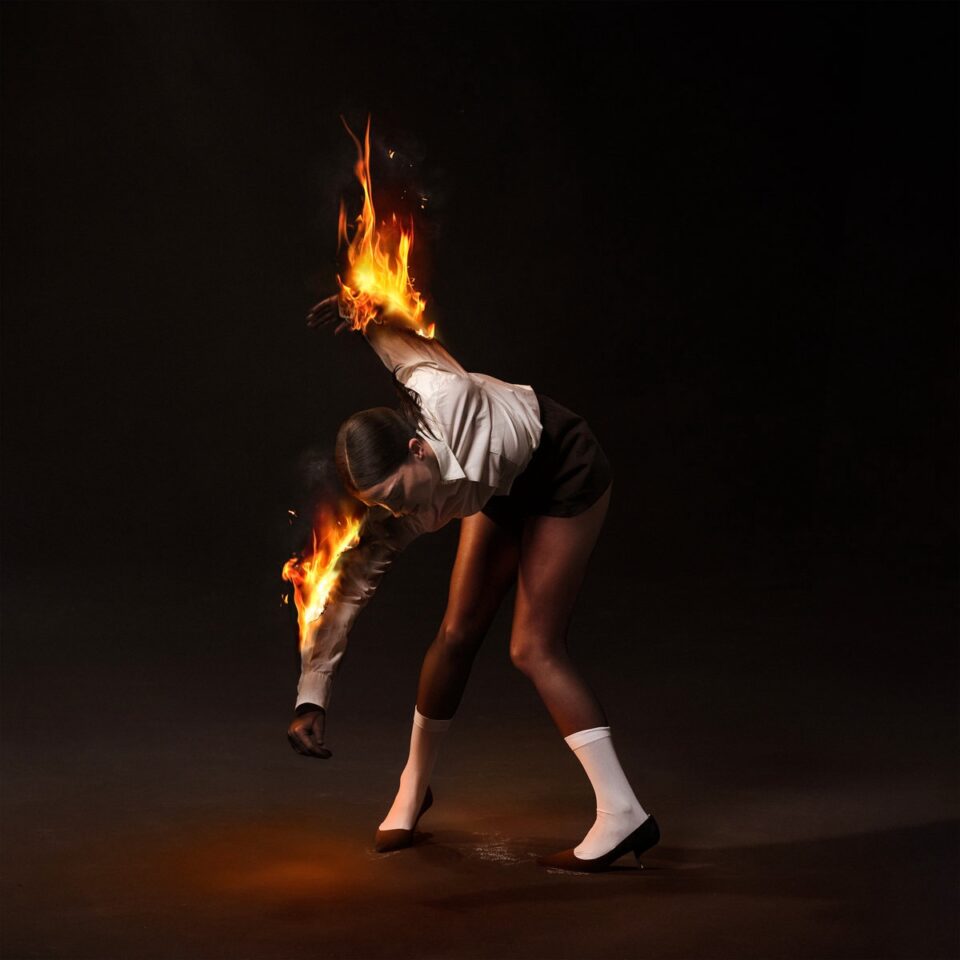
14. St. Vincent, All Born Screaming
On her seventh album as St. Vincent, the artist otherwise known as Annie Clark frees herself of all barriers and encumbrances. Self-producing solo for the first time, the singer-guitarist delivers less a concept album than a collection of ambitious single tracks that wander from the funky to the ethereal, with no adopted persona to obscure the raw feelings underneath. She again taps a vein of real experience, at peace with and fascinated by the chaos of existence. She moves from the sublime to the crushing on the NIN-ish “Broken Man,” one of two tracks with Dave Grohl on drums. “Flea” is playful and curious, as Clark sings like a lover/parasite: “I look at you and all I see is meat... Once I’m in, you can’t get rid of me.”
Following 2021’s ’70s-obsessed Daddy’s Home, Clark this time ambles through styles and storylines. “Big Time Nothing” is like classic Tom Tom Club—fierce and fun—while “Violent Times” has her wailing like Shirley Bassey over the tense horns of a James Bond theme. In “Sweetest Fruit,” Clark finds poetry in tragedy, layering jangly guitar over electronic blips and waves of affection. Without elaborating, Clark has said that the album was at times “heart-wrenching” to make. But if its first half is often dark, other songs give way to freedom and euphoria. It closes with the soaring, seven-minute title track, where Clark is joined by the Welsh musician-producer Cate Le Bon as she explores her own restless spirit: “I can’t stop my legs, I can’t feel my feet / I own nothing, and nothing owns me.” Adventurous and deeply felt, All Born Screaming is one of the year’s most captivating and memorable records. — Steve Appleford
Read our review of All Born Screaming here.

13. Magdalena Bay, Imaginal Disk
Imaginal Disk, the shimmering, immersive sophomore album from electro-pop duo Magdalena Bay, sounds like it’s bursting with ideas even before you realize that it’s a heady sci-fi concept record about being implanted with a forehead disk, rejecting it, and subsequently discovering the truest version of yourself. The album goes down considerably easier than that pitch would suggest; Mag Bay have emerged as one of the essential new bands of this decade, writing sticky pop hooks but submerging them in unexpected, progressive song structures and soundscapes. That intent to disorient is established early on in Imaginal Disk, with the cumulative punch of both swirling, amorphous opener “She Looked Like Me!” and the seductive groove of “Killing Time”: “Count up all the years that we spend asleep / If time is meant for living, why’s it killing me?” Nothing we haven’t learned from Pink Floyd or Hootie and the Blowfish, to be sure, but its playful, psychedelic strut somehow registers as both light on its feet and freshly ominous.
Throughout the rest of the record, Magdalena Bay continues to find an impossible balance, crafting songs that are equal parts melodic pop and bold, untethered invention. “Cry for Me” is a dizzy, ABBA-indebted disco odyssey; the cozy serenity at the outset of “Tunnel Vision” is subsumed by an immense, chaotic finale. The album’s restlessness ensures something new lurking behind every corner. “Look out behind you, the shadows are near; they know what’s been wrong with you all these years,” singer Mica Tenenbaum warns on “Watching T.V.” On Imaginal Disk, self-discovery can be equally terrifying and exhilarating, but it’s impossible to escape. — Alex Swhear
Read our review of Imaginal Disk here.
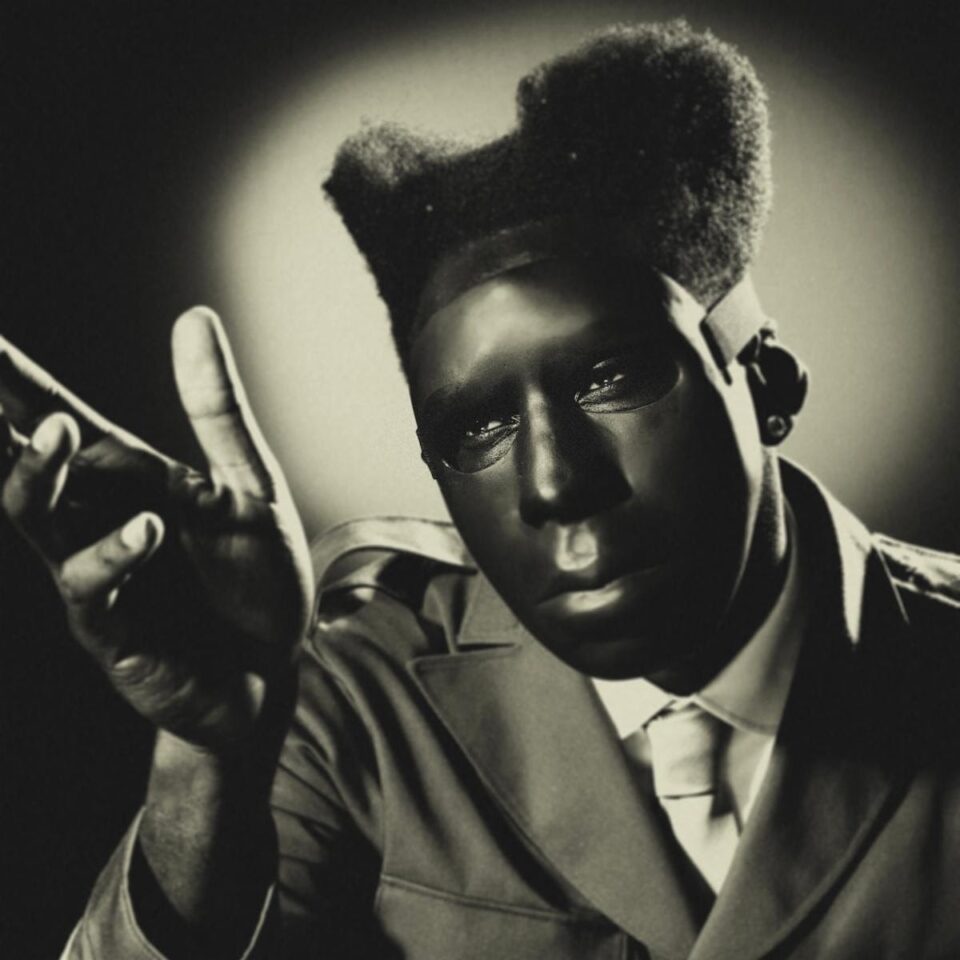
12. Tyler, the Creator, Chromakopia
Journeyman songwriter Dan Hicks wrote “I Scare Myself” about his deep-seated yet never specified fears of ever being without the one he adores (or abhors—the point is, something got Hicks buggy). From the first moment they leave his shadow to the very thought of inhabiting a space without this person, Hicks can only wonder when they’ll return so as to make him feel better, feel calmer, or, maybe just feel. “What can I do,” Hicks shrieked with a shiver in his voice about that which was once destiny’s star-crossed hold, only now abandoned. After so many albums where he was the creepy, face-making frightener with coy, clever takes on hip-hop menace and blame, Tyler, the Creator—suddenly a real adult at age 33—is scaring himself. Not so surprisingly, Tyler still sounds iconic (what other rapper has that haughty, deeply nasal voice filled with drama at every bite?) as a rap grown-up with freshly resigned ruminations on the aging process ruling the day.
Tyler sounds anxiety-ridden throughout Chromakopia; more honest (perhaps) and stark without the masks he once held dear on albums like Igor and Wolf in order to deal with everything from pondering his sexuality to issues of absent fathers and questioning fame. “Mama, I’m chasing a ghost, and I don’t know who he is,” Tyler sounds off across the confounding “Like Him.” There’s a vulnerability in hearing Tyler call out to his mother, Bonita, who starts her son’s new album with a voice memo filled with sage advice leading into “St. Chroma” and the sound of vocalist Daniel Caesar haunting its ritually spiritual Muzak. There’s something jarring in hearing Tyler deal with the commonplace distress of “Hey Jane” and its fear of bringing new, unwanted, life into the world, or being forced to look inward as an adult during “Take Your Mask Off.” — A.D. Amorosi
Read our review of Chromakopia here.

11. Clairo, Charm
Clairo’s third album Charm is a throwback to ’70s-era Laurel Canyon folk and R&B by way of Innovations’ “Seabird” and a small dash of ’90s-era Broadcast. The result is a lush feast of Wurlitzer, Mellotron, organ, and piano, all blending with a tastefully compressed mic that gives Claire Cottrill’s vocals a soft vintage feel. The pop arrangements she expertly crafts are subdued by the record’s production, but this only prevents her songs from becoming too modern and polished, which would’ve only cheapened their meticulous throwback aesthetic.
Producer Leon Michels, known for his work in El Michels Affair and as a member of the Dap-Kings, understood Clairo’s vision and helped her craft a warm, delectable, hypnotic, and immersive atmosphere. Although not particularly complex lyrically, her songwriting is vulnerable enough in quaint ways and overall well-considered. But the authentic charm of the aptly titled record is its out-of-time nostalgic quality, which Clairo executes successfully. It’s hard to make a record this strong that can capture the essence of an era without sounding like a complete rip-off, even with all the money and resources accumulated six years into a status of pop stardom. Some people just have songwriting in their blood, and Clairo continues to prove that she’s undoubtedly one of those people. — Juan Gutierrez
Read our review of Charm here.

10. The Last Dinner Party, Prelude to Ecstasy
It takes real audacity to open one’s debut album with a 96-second orchestral overture. But on the gauntlet-throwing Prelude to Ecstasy, The Last Dinner Party have done just that. It’s a fitting introduction for these witchy-woman Brontë heroines, who in 2023 swashbuckled their way onto the UK scene fully formed and festival-ready with their maximalist coquette-core, trailing vintage silks and velvets, pheromones and hormones in their wake. LDP simply don’t do subtlety. If Stefon from Saturday Night Live were writing this, it would go something like this: “London’s hottest Last Dinner Party has ev-er-y-thing: pomp, circumstance, guitar-goddess energy, Catholic guilt, feral desire, emotional violence, sing-along choruses about mindless [bleep]-ing, mandolins, keytars, liver…”
On the nonstop-erotic-cabaret that is their James Ford–produced debut, rock-operatic tortured poetess Abigail Morris, with her lusty Banshee wail, sounds like she’s delivering every florid, bodice-ripping lyric from a Victorian fainting couch, selling the sadomasochistic drama on nearly every song. And it’s all buoyed by the spiky, stadium-sized solos of art-rocking axewoman Emily Roberts, who—and this totally tracks—once played the Brian May role in a Queen tribute band. That influence is heard, of course, on bludgeoning, baroque ballads like “My Lady of Mercy” and “Caesar on a TV Screen”; comparisons to Kate Bush, Country Life–era Roxy Music, pretty much every era of Sparks, Ford’s productions for Florence and the Machine and Last Shadow Puppets, and, perhaps most accurately, a Gothic, Visitors-era ABBA also spring to the fevered brain. But Prelude ultimately sounds startlingly fresh and original, earning every column inch of its (at times backlash-generating) press hype. Hopefully it’s the prelude to a long and iconoclastic career. — Lyndsey Parker
Read our digital cover feature with The Last Dinner Party here.
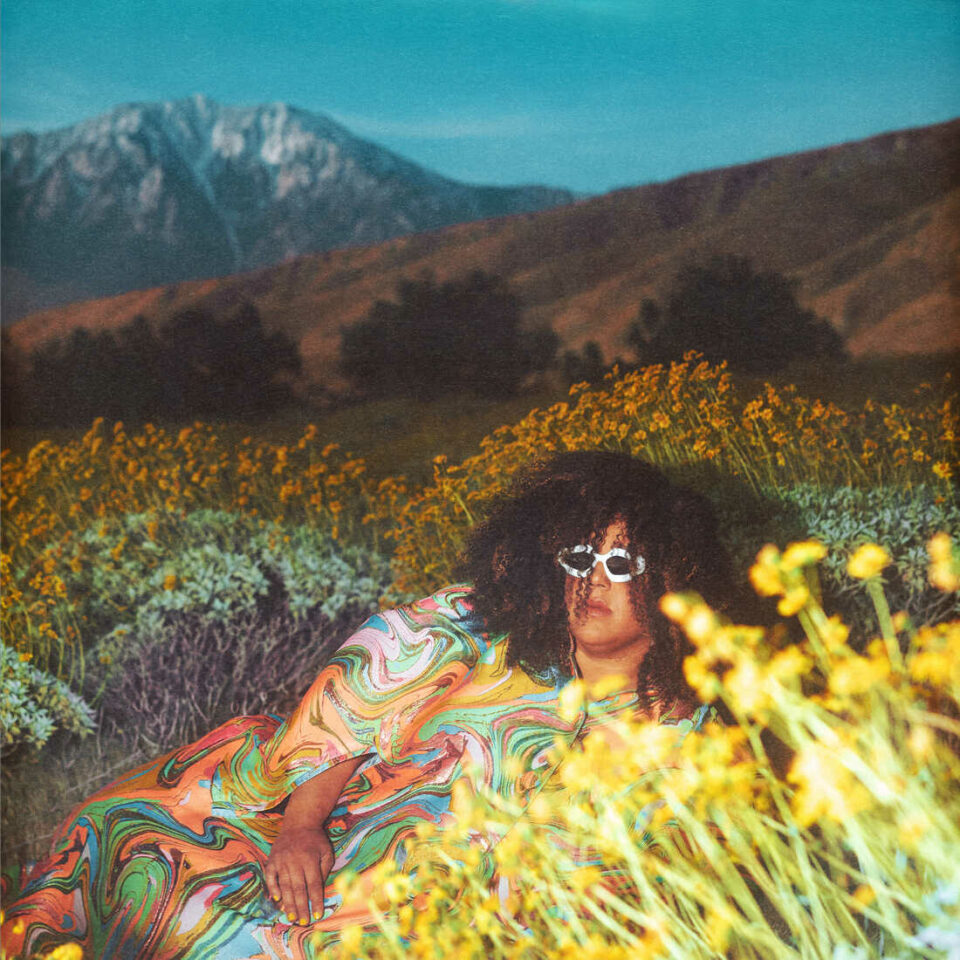
9. Brittany Howard, What Now
Alabama Shakes’ Brittany Howard operates within a quicksilver musical atmosphere on What Now. She manages to extend the efforts of her genre-melting solo debut, Jaime, with the result being a warm and smoky cocktail of blues, rock, and R&B. Nightclub glimmer-and-shimmy jams (“What Now”) stand alongside ruminative Steve Wonder/Essie Wright ballads (“To Be Still”), jazz strolls (“Samson” and “Every Color in Blue”), and psychedelic dance kaleidoscopes (“Prove It to You”). The 12-track album also doesn’t forget to find the fun, as Prince-esque R&B vampiness pops up on the searing “Patience” and “Power to Undo.” Both tracks light a fuse and don’t let up on the fireworks until the end.
Much has been said about Howard’s incisive guitar solos, but her vocals have improved since her Alabama Shakes days, as well. What Now’s variety is its greatest strength as it helps the songwriter shine a light of empowerment on disempowered people finding themselves at a crossroads. It’s a soulful album with real meat on its bone and a fitting complement to the equally experimental Jaime. Neither album wastes any time showcasing how powerful Howard has become as a musician, lyricist, and studio collaborator. But What Now looks forward with a blazing trail hopping between styles as Howard continues to set a strong example of how to best transmogrify past influences to set up a singular singer-songwriter style that can’t be easily replicated. — Kyle Lemmon
Read our review of What Now here.
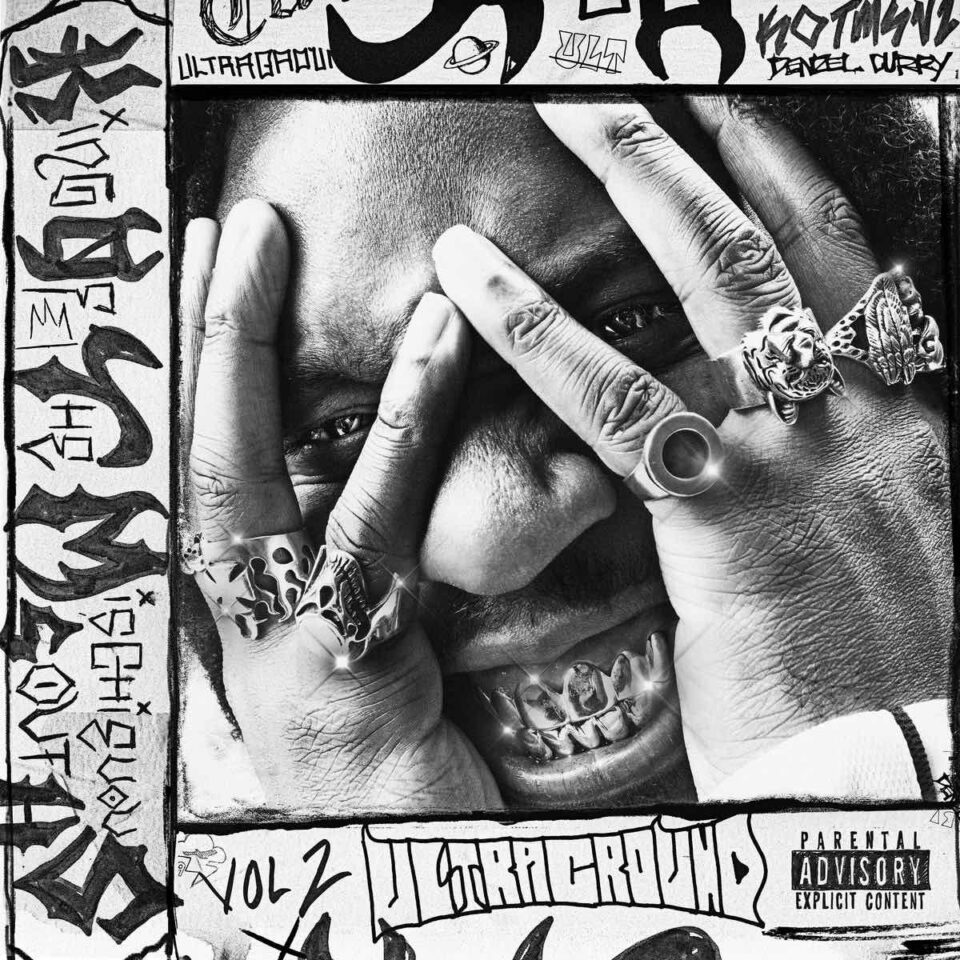
8. Denzel Curry, King of the Mischievous South Vol. 2
Denzel Curry has been releasing music long enough that there’s a clear pattern discernible among his records. After putting out his breakout album TA13OO in 2018—a project that felt conceptual to a fault, with its structural and thematic rigidity frequently stifling the rapper’s natural creative flow—Curry returned less than a year later with Zuu, a totally unstructured, off-the-cuff-sounding exhalation that called back to the rawness and whimsy of his early mixtapes. And while 2022’s Melt My Eyez See Your Future was a vast improvement on TA13OO, the materialization of King of the Mischievous South Vol. 2 over the summer (itself an explicit sequel to a 2012 tape) confirmed that Denzel is at his best when he isn’t swinging for the fences. Even as he experimented with Spaghetti Western and chambara aesthetics on his last record, the chaps and obis felt a size or two too big every time he dropped a straight-faced, groan-inducing pun.
Mischievous South, on the other hand, foregoes the balancing act Denzel has long attempted between corny wordplay and gravely serious autobiographical lyrical themes, instead teaming up with a ragtag group of friends to rap about kush that reeks of piss and other skewed brags familiar to the genre. And while we don’t get the wild experimentalism heard on the beats for “Walkin” or “Zatoichi,” the instrumentals are among the hardest Denzel’s ever rapped over (“Hit the Floor” will have you doing just that) without foregoing the occasional NBA Jam sample. If anything, Curry should’ve released this as a standard album rather than a kitschy mixtape—in an era where all of the most respected rock music tends to revel in nostalgia, why can’t we take rap that embraces a similarly playful approach seriously? — Mike LeSuer
Read our review of King of the Mischievous South Vol. 2 here.
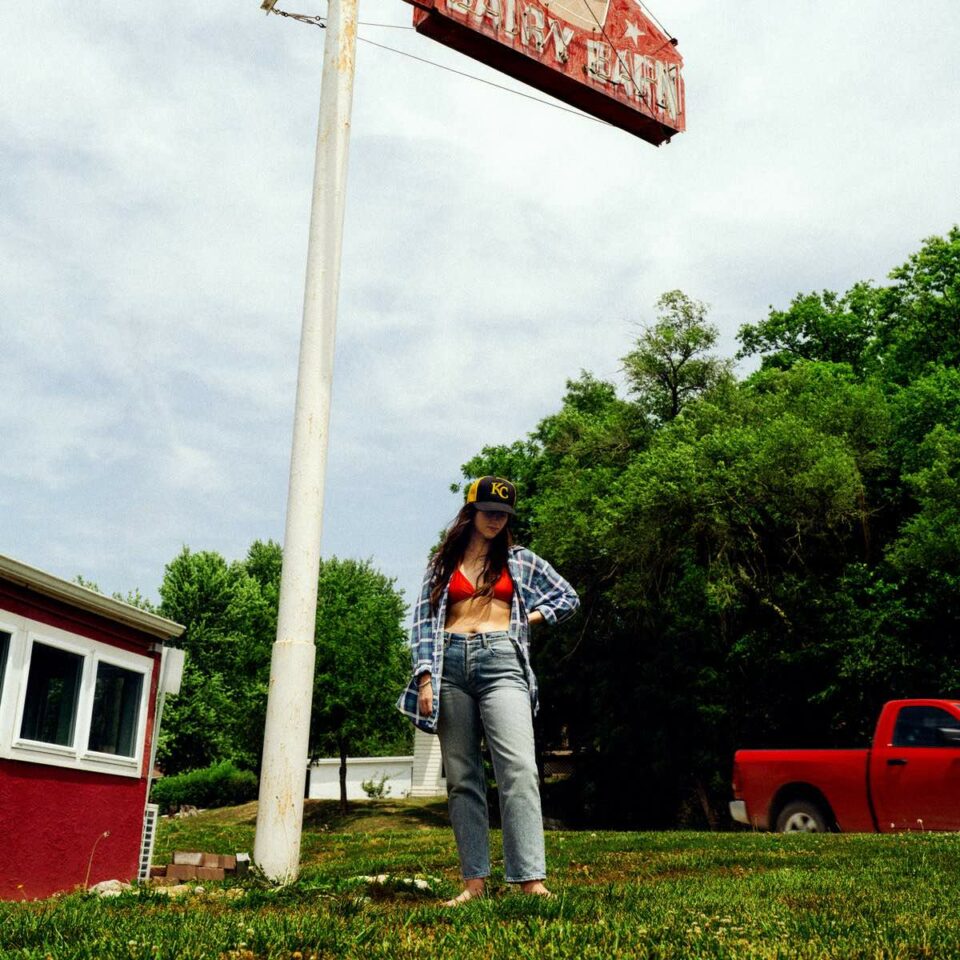
7. Waxahatchee, Tigers Blood
Following 2020’s Saint Cloud, which dove deep into themes of recovery and codependency, and which finally allowed her Americana influences (not to mention her Alabama accent) to shine, Katie Crutchfield’s sixth studio album Tigers Blood revels in the fruits of honesty. Even though it came out in mid-January, lead single “Right Back to It” nestled into the upper echelon of this year’s best songs with the easy candor of a summer bonfire. The collaboration with Wednesday’s MJ Lenderman finds Crutchfield analyzing her own anxieties and self-destructive instincts before coming back to the people she loves to recenter.
On the flip side is “Evil Spawn,” a dizzying track about learning how much better you deserve, and “Bored,” which funnels a real-life friend breakup into a righteous country-rock kiss-off. With Brad Cook returning as producer and a new backing band that includes Lenderman, Phil Cook, and Spencer Tweedy, Crutchfield turns these stones over in a way that’s frank but still feels light, celebrating the kind of love that embraces you fully and refusing to accept anything less. It’s an assured, unruly form of reflection that often evokes her hero Lucinda Williams: the picking pattern on “Crowbar” nods to “Passionate Kisses,” while “The Wolves” centers the straightforward, frustrated couplet “I can’t talk to God / I can’t light it up.” Sure, we may not be able to speak directly to the divine—but through these songs, it’s easy to find communion. — Annie Parnell
Read our review of Tigers Blood here.
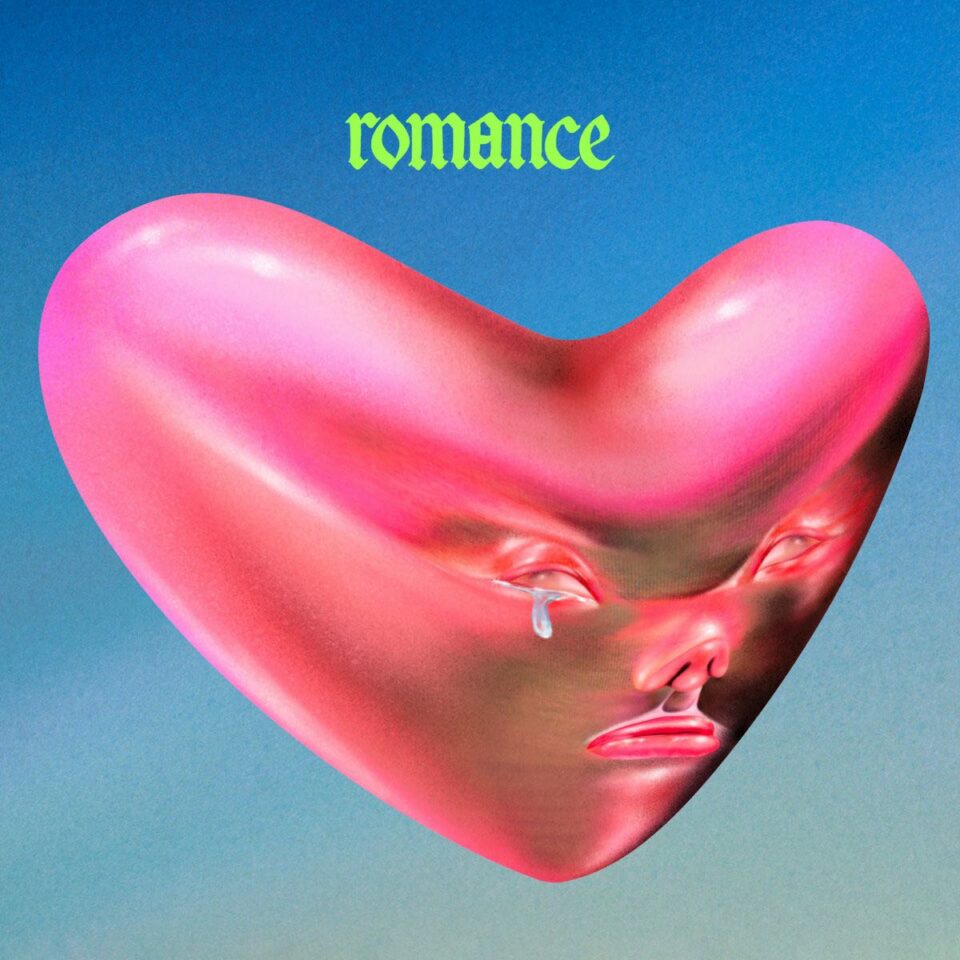
6. Fontaines D.C., Romance
Fontaines D.C. are not only consistently brilliant, but the Dublin rockers keep finding new ways to push their own boundaries. Since their 2019 debut Dogrel, the band has gone from being a key cog of the UK’s post-punk scene to one of the biggest rock bands in the world. Romance is their most kaleidoscopic work to date, as they looked over to American shores for influence: “Sundowner” is perfectly saturated shoegaze, while opener “Romance” has a delicate beauty found among its eeriness that Elliott Smith would be proud of. There’s a sense of burgeoning euphoria throughout, as Fontaines hit upon stadium-sized anthems with huge choruses, none more so than the highly chantable “Death Kink.”
Underneath this embrace of a more colorful palette, this is a band concerned with the passing of time. Frontman Grian Chatten sometimes treads the path of paranoia, but never without sincerity. The album closer “Favourite” speaks to one of the core truths of entering adulthood, that “every time you blink you feel it change”—people come, people go, and we realize how little of that we can actually have a say in. For what is a bold shift in style for Fontaines D.C., they carry it off effortlessly, proving they’ve become one of rock music’s most prolific bands in just five years. “Romance” builds on their early foundations and sees them gazing upon a whole new direction. Yet within these new stylings remains a key ethos of brutal beauty, a fine line they clearly tread with ease. — Matty Pywell
Read our review of Romance here.

http://www.pdf-tools.com
5. Charli XCX, Brat
If 2019’s Charli proved, in Tina Turner terms, how nice-and-rough XCX liked her just-percolating, self-made brand of edgy hyperpop, Brat showed off how to make that sound an entire brand (if a mainstream political party is using it to campaign, you know it’s over), and how to expand from uncouth, clubby catchiness with vulnerability and an oddly tender focus on loss. For every upbeat moment on Brat, there’s a dedication to friends gone, such as “So I” and XCX’s tribute to her late, great musical partner in crime, SOPHIE. For all her confident swagger as a lyricist and gutsy singer (“It’s OK to just admit that you’re jealous of me,” she opens “Von Dutch,” “You’re obsessing / Just confess / It’s obvious I’m your #1”), there are questions of how shakily unstable her future still is (see: “Rewind” and the lyric “I’d go back in time / To when I wasn’t insecure,
to when I didn’t overanalyze my face shape”).
Along with XCX’s Brat advancements in her lyrics (or their willingness to revisit past sadness) and hard-won experimentation in her vocal tones and beyond (the subtly icy use of Auto-Tune on the ballad “I Might Say Something Stupid”), her rabid co-production vibe on everything from the jazzy “Mean Girls” to the hard-soft trap “B2B” proves she’s ready to take full control over anything and everything she chooses—something perhaps best witnessed during her recent hosting-performing gig on Saturday Night Live. XCX’s Brat ideal, as a lifestyle choice, marketing tool, and political/pop-cultural whatever, outlived its usefulness months ago. But as a totemic and torrid description of what any new aesthetic could be in the hands of someone smart and sensual, Charli is bratty to the core. — A.D. Amorosi

4. Billie Eilish, Hit Me Hard and Soft
It’s a somewhat unconventional approach these days to not drop a single before releasing an album, but it speaks lengths as to the intention behind Billie Eilish’s third album. Hit Me Hard and Soft is the pop star’s most reflective record to date, as she ponders her own needs and the public’s perception as to who Billie Eilish is. “Lunch” is a devilishly flirtatious example of queer desire, as the singer declares, “It’s a craving, not a crush.” The album’s most danceable earworm, it revolves around slick guitar riffs that are flung at the listener alongside breathy, punctuated drumming.
As a whole, Hit Me Hard and Soft feels completely engulfing. Within this submergence, Eilish is washing away the previous versions of herself that we’ve become accustomed to and thinking about the paths she may take next. There’s a deluge of beautiful melodies to be found throughout, from the delicate and intimate “Birds of a Feather” to “The Greatest,” which builds to an expansive and all-encompassing crescendo of soaring strings and vocals. There’s room for the darker elements we’ve seen previously in her discography, too, especially in the second half of the album, with “L’amour de ma vie” signaling a switch into murkier waters. Eilish and sibling collaborator FINNEAS have created an impressively understated record that will satisfyingly unravel itself to you the more you listen. It’s the product of an artist completely confident in her vision, as Eilish looks to the future on her own terms rather than those set for her. — Matty Pywell
Read our review of Hit Me Hard and Soft here.
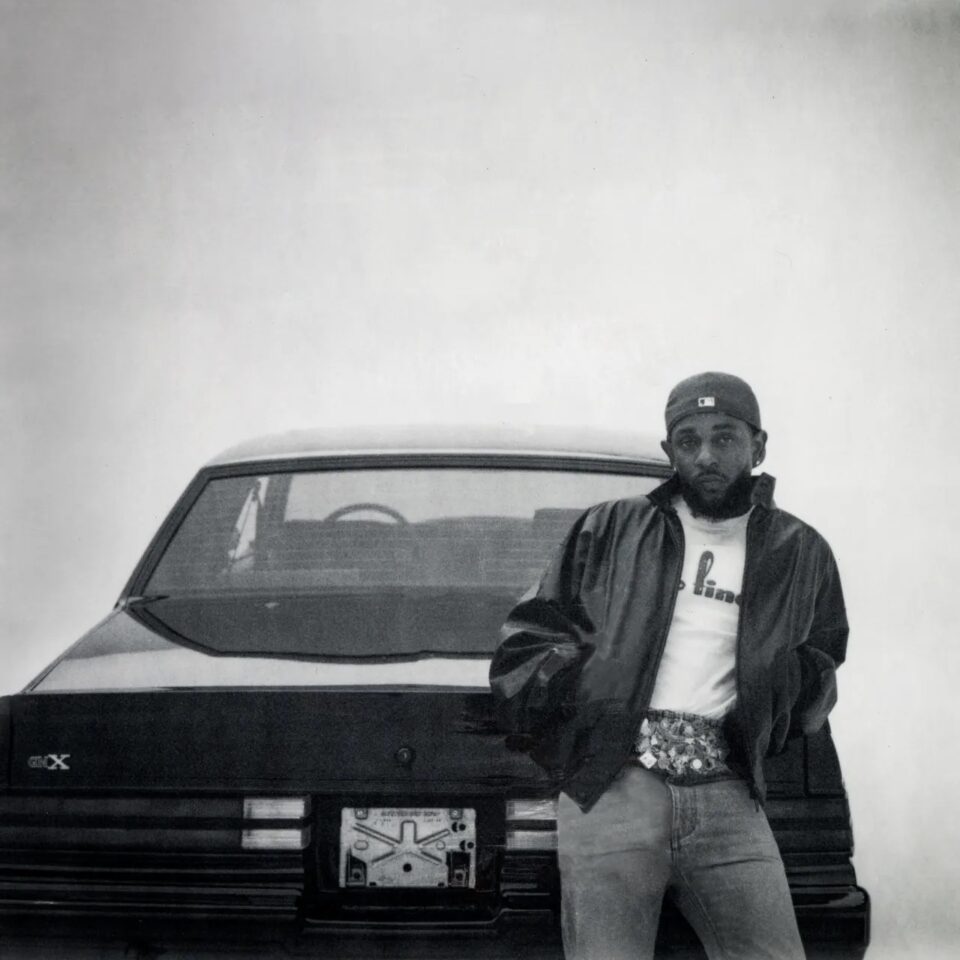
3. Kendrick Lamar, GNX
The term “victory lap” has been thrown around a lot. And of course it has; by any measure, Kendrick Lamar’s 2024 represented a new high-water mark: first handily out-rapping and out-strategizing Drake during their bitterly personal back-and-forth earlier this spring, then securing the Super Bowl halftime show (at the protest of Lil Wayne). And then came GNX, released without warning the week before Thanksgiving. It arrives with an aura of confidence; this is Kendrick’s unfussiest album, lean and uncharacteristically relaxed, expending minimal energy underlining a thematic throughline. But unsurprisingly for Kendrick, it’s more complicated than that, too. He’s reflective, as on the third verse of “Reincarnated,” where he shines a light on his most glaring contradictions; he’s also defiant, categorically ruling out a truce on “Wacced Out Murals.”
Finding the right calibration post–“Not Like Us” was always going to be a challenge, but GNX gets it exactly right; shrapnel of the Drake beef is all over the album, but it’s also pointedly not about him. To the extent that it’s in conversation with the beef in a sustained way, it’s in Kendrick’s intentional cultivation of West Coast talent throughout the record, a pointed contrast to Drake as a “colonizer.” But Drizzy factor aside, this is another uniformly impressive Kendrick Lamar album, as sharply written as ever (with the exception of the closing song’s thuddingly obvious twist, a moment that lands like Kendrick’s very own rat from The Departed). Repeat listens reveal a deceptively well-rounded collection of songs, at turns pugnacious (“Murals”), tender (“Luther”), warm and wistful (“Heart Part 6”), moody and aggrieved (“Peekaboo”). Mostly, GNX is Kendrick doing what he does best; he’s not fundamentally different, only liberated. — Alex Swhear
Read our essay on GNX here.
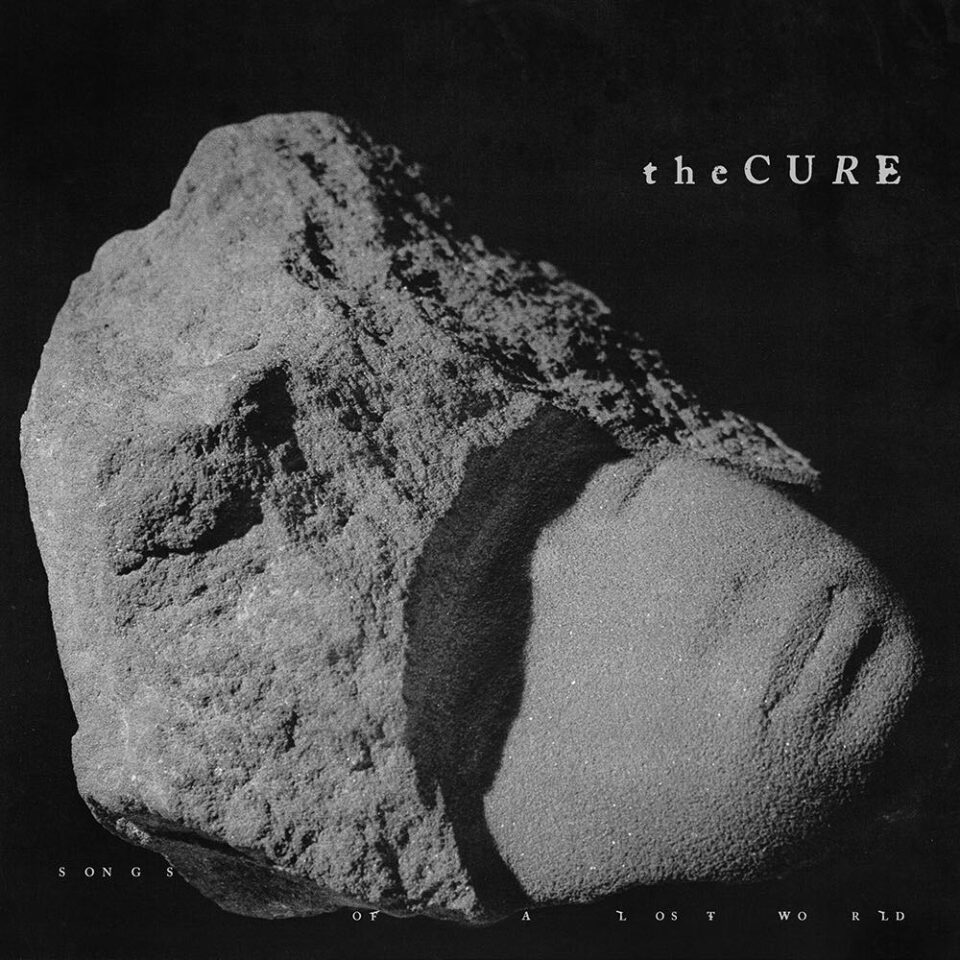
2. The Cure, Songs of a Lost World
“It doesn’t matter if we all die,” Robert Smith yowled in 1982 at the age of 23. Three years later, he moaned, “Yesterday I got so old, I felt like I could die.” But in 2024, hearing the now 65-year-old Cure icon lament, in his instantly identifiable wail, “Remembering the hopes and dreams I had / And all I had to do / And wondering what became of that boy / And the world he called his own / I’m outside in the dark / Wondering how I got so old”—well, it hits different. Smith has always grappled with a sense of mortality; when The Cure released their career-defining Disintegration in 1989, he was already suffering from a midlife crisis and threatening to retire. The five LPs that sporadically followed never approached that masterwork’s melancholic majesty, and that’s precisely why this year’s long-promised Songs of a Lost World—the Cure’s first album since 2008—is such a stunning, absolutely expectations-confounding comeback.
An instant-classic best listened to in a tightly curled fetal position, from the seven-minute sonic grandeur of “Alone” to the 10-plus-minute existential epic “Endsong,” Songs is the clear companion to the Cure catalog’s darkest entries, Pornography and Disintegration. And as only the second Cure album with Smith credited as sole songwriter, it’s also an intimate work, crafted in solitude, deeply and devastatingly personal. Like many of his aging fans, Smith has experienced great loss in recent years, so his lyrics have become plainer, blunter—resonating all the more as a result. The refrain “Something wicked this way comes / To steal away my brother’s life” on “I Can Never Say Goodbye” is a direct gut-punch, while “And Nothing Is Forever,” a deathbed confessional inspired by Smith’s real-life unfulfilled promise to be by a loved one’s side in that person’s final moments, just might be the saddest, sincerest thing he’s ever written. Suffice to say, the pop whimsy of “Friday I’m in Love” is nowhere to be found here, but this peak-of-powers album is still cause for black celebration. The Cure are, indeed, forever. — Lyndsey Parker
Read our review of Songs of a Lost World here.

1. Mannequin Pussy, I Got Heaven
For too long, people have been separating the personal from the political. And fair enough—there’s often too much going on in someone’s life to fully commit to addressing the systems of oppression that govern our capitalistic hellscape. The irony is that the two actually go hand in hand, and always have. That’s a connection that I Got Heaven, the John Congleton–produced fourth album from Philadelphia four-piece Mannequin Pussy, has absolutely nailed. Because while its 10 sumptuous, incredibly un-punk punk songs are both emotionally tender and overtly sexual, they also exist within the context of the systems the band, fronted by the erudite and articulate Missy Dabice, have always been battling against. While they’re often cast as a feminist band, it’s important to note the intersectionality of their beliefs—their music doesn’t just take on the patriarchy, but the capitalist, imperialist, racist, and religious systems that keep it in place.
They do so here again, and, with a few exceptions (namely the belligerent punk explosion of “OK? OK! OK? OK!” and the stunning confrontational opening title track, replete with the killer line “And what if Jesus himself ate my fucking snatch?”), they do so with much more emotional vulnerability than ever before. Just listen to the catchy strains of “Sometimes,” or the gentle closer “Split Me Open,” which means exactly what you probably think it does. It makes for a record that truly shows how interlinked the personal and the political are, not least in the US, where Republicans and Democrats use female bodily autonomy as a means to lure in voters from both sides, even if the latter don’t actually want to safeguard abortion rights. As the 2024 election demonstrated, however, it’s just not enough to be opposed to something. You have to actually stand for something.
Listening to this stunning album—the band’s most accessible to date, but don’t let that fool you into thinking their edge has gone—it’s clear that Dabice and Mannequin Pussy understand that all too well. These songs are very much caustic, incisive invectives of all those oppressive systems. But these 10 songs also make a very strong case for joy serving as an act of resistance, for kicking against the pricks to find your own happiness, especially in a hostile economic and environmental climate that’s constantly depleting our serotonin as we merely try to survive. These songs don’t ignore the problems of the world, but they exist in spite and because of them, demonstrating just how resilient and powerful humanity and beauty, love and pleasure, truly are. All of which combines to create what is, without a doubt, one of the most important and brilliant albums of the year. — Mischa Pearlman
Read our review of I Got Heaven here, and our end-of-year digital cover feature with Mannequin Pussy here.







